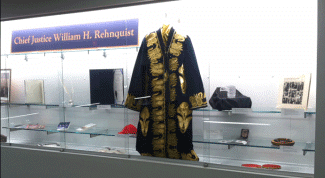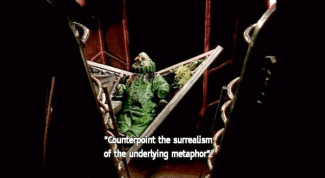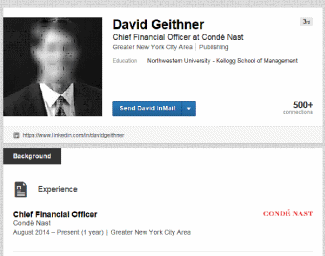Geraldo in Tucson, by Charles Carreon
Charles Carreon, The Arizona Kid
Re: Charles Carreon, The Arizona Kid
God Is So Pissed About Gay Marriage and Immigration, by Charles Carreon
11/22/08
11/22/08
- admin
- Site Admin
- Posts: 37697
- Joined: Thu Aug 01, 2013 5:21 am
Re: Charles Carreon, The Arizona Kid
Tim Geithner's Toxic Koolaid Stand Opens For Business, by Charles Carreon
03/24/09
03/24/09
- admin
- Site Admin
- Posts: 37697
- Joined: Thu Aug 01, 2013 5:21 am
Re: Charles Carreon, The Arizona Kid
Why I Love Conservative Talk Radio, by Charles Carreon
03/25/09
03/25/09
- admin
- Site Admin
- Posts: 37697
- Joined: Thu Aug 01, 2013 5:21 am
Re: Charles Carreon, The Arizona Kid
If Saying Makes It So, Mark Levin is "The Great One," by Charles Carreon
04/25/09
04/25/09
- admin
- Site Admin
- Posts: 37697
- Joined: Thu Aug 01, 2013 5:21 am
Re: Charles Carreon, The Arizona Kid
HaterTV Shoots Back at Spitballing Mark Levin Fans, by Charles Carreon
04/29/09
04/29/09
- admin
- Site Admin
- Posts: 37697
- Joined: Thu Aug 01, 2013 5:21 am
Re: Charles Carreon, The Arizona Kid
Blackwater Cutout Companies and the Spies Who Love Them, by Charles Carreon
09/08/10
09/08/10
- admin
- Site Admin
- Posts: 37697
- Joined: Thu Aug 01, 2013 5:21 am
Re: Charles Carreon, The Arizona Kid
Rock ‘n’ Roll Library, Rest in Peace
by Charles Carreon
July 17, 2015
If you’re reading this, the American Buddha Online Library is down, and you are one of the thousands of people today who are wondering where it went. Its disappearance is in large part my fault. I incorporated the American Buddha nonprofit corporation and served as ABOL’s lawyer for fifteen years, and helped it keep the reality of free access to scholarly literary works alive. Like most other innovative media outlets that come under fire from the media monopolists, ABOL needed an attorney to enable its challenging existence as an Internet institution. And like many other innovative media outlets lacking millions in funding and a friendly government climate for media sharing, copyright litigation by the publishing powers-that-be has put an end to it.
Birth of A Notion
ABOL came into existence in year 2000, the brainchild of my life partner and revolutionary comrade, Tara. Tara blew out of a twenty-year romance with Tibetan Buddhism in relatively spectacular fashion, turning from a model devotee for the hierarchy to a fierce critic of mind control. She wrote a well-respected essay, Another View on Whether Tibetan Buddhism Is Working In the West, that became the point of departure for many Dharma students trying to figure out how to become a genuine American Buddhist. Over the years, Tara used American Buddha to achieve her goal of opening the minds of Western Buddhists to the revolutionary idea that we each have the right and ability to spiritually educate ourselves.
As part of her self-deprogramming, Tara continued the intense philosophical self-examination that she had begun as a Buddhist practitioner by reading Descartes, Lucretius, Marcus Aurelius, and other Western students of mind and reality. Simultaneously she delved into the conundrums swirling around the WTC 9/11 daylight murders that were then, and remain today, an unsolved crime. She also gave free rein to an interest in the politics of deception and manipulation, studying the origins of the CIA in the OSS, Project Paper Clip, the Northwoods documents, and secret government stuff.
One day she said that it was necessary to put entire books up on the website in order for people to be able to study them like she was. She had got into copying and scanning books so she could read them easier. If she scanned and read a book, why should she selfishly just keep it in her computer, when she had a website where she could share it with other people?
She challenged me to explain why she couldn’t share her books on the Internet. I was free to come back to the house once I had an explanation. After about three days of research, during which I discovered you didn’t need a license to open a library, (doh! a little First Amendment issue there), I realized that Tara wanted to open a library. I read the laws and cases about libraries, and there were precious few of any relevance. It seemed to me a little unclear why libraries don’t get sued for lending books. There’s no law against suing libraries, and buying one book for a whole town to read isn’t really going to sound like a good idea to the guy who runs the bookstore, especially if a lot more of these “libraries” open up. But brick-and-mortar libraries seemed to enjoy a freedom from litigation that doesn’t arise from any act of Congress or State lawmakers. It’s more of a tradition than anything.
I found no laws that said libraries were only protected from lawsuits if they had paper books, so I said to Tara, “Well, if you get the website on a network that won’t chicken out on you when they get a DMCA notice, and you register a DMCA Agent for American Buddha, when you get a DMCA notice you take the stuff down for ten days, then you put it back up. If they don’t like that, they can sue American Buddha.” That’s how the idea was born and persisted for fifteen years.
Those Who Threaten, As Distinct From Those Who Sue
It wasn’t always fun. The first person to complain about a book being on the website didn’t send a DMCA notice. She just called me and yelled at me for about ten minutes. She sounded like a badass bitch who knew where she had her lawyer tied up in the back yard, and was ready to let him loose any time. I had my plate full with personal battles, like trying to get my share of the Sex.Com victory money, so I didn’t need a copyright lawsuit. I was ready to concede before a shot had been fired. But Tara told me to snap out of it, that people who threatened like that always got what they wanted by threatening, and rarely sued. She was right, and remained right about it until April 2009, when Penguin sued American Buddha. But then, of course, their lawyers’ threats were pro forma. It was obvious they were going to sue.
Lost In The A-Zone
At that point, we had moved to Arizona, trying to get back to our roots after the death of our son in February 2007. We tore apart a 1957 brick ranch house in Tucson, renovating it and planting trees, creating a little retreat where the ABOL server hummed away, a frontier library on the digital frontier.
Tara created ABOL as she did, buying and scanning and publishing books, from a sense of duty, a sense of mission. She comes from Colorado Mormons, people who are unbelievably tough, and achievement in the physical realm has always been her forte. Her long, tall body has a way with the world, and she moves through it making creative changes. She’s efficient, she knows what she’s doing, she gets stuff done. So, like a digital quilt, ABOL grew and grew and grew, reflecting Tara’s hunger for knowledge, and her desire to share it. Over the course of fifteen years, she published millions of files, leaving me the duty of protecting that domain.
Battle In the Southern District
I was raised on submarine warfare films. One of my babysitters had a husband who’d been in the Navy in WWII, and so we watched all those submarine films where the American sub is hiding down at 280 feet, and the Japanese PT boat is stalking them from above, launching depth charges over the side. There’s a moment of tension as the explosive-laden cylinders drift into the deep, trailing bubbles, and the sub crew holds its breath, engine stopped, sub sonar pinging softly. Then they start going off all around, the rivets exploding out of the hull like bullets, water starting to spray, and the radioman, just a kid, starts to crack up. One of my favorite war movies is Das Boot, about a German sub captain in World War II, who pursues his terrible mission with sombre gravity, and cares for his crew with the kindness of a father who cannot be kind in the ordinary sense. In Das Boot, there’s a great scene where Josef the engineer, a tall, bearded mechanic dripping sweat and fatigue who lives in the heart of the engine and keeps the sub’s heart beating, shows up on deck. He’s not supposed to be there. He’s cracking from the pressure, and he looks desperate to be out of that engine room. All the Captain does is tell him to go back to the engine room. The message to Josef was so clear. It’s too late to freak out. We are here. Do your job.
Most of my legal, professional life I have lived with an engineer like Josef in my heart, and a Captain in my head. From 2009 until 2013, I defended American Buddha in the Southern District of New York (SDNY), fighting and winning dismissal twice on grounds of personal jurisdiction. But while I was winning these battles I was paving the road to the loss that American Buddha has suffered. I should have realized that Penguin was never going to give up suing just because it couldn’t sue in New York. And I should have considered that even though the SDNY was home turf for Penguin, it also had some of the smartest judges in the country.
I had drawn several great judges while in the SDNY, first Judge Lynch, who was elevated to the Second Circuit right after he dismissed the case for the first time; second Judge Koeltl, who memorably told Penguin’s lawyer at an oral hearing that giving away books for free didn’t make American Buddha subject to suit in New York; and third, Judge Ronny Abrams, the daughter of the great First Amendment scholar, Floyd Abrams. All I had to do was say to Judge Abrams, “We have decided to waive our personal jurisdiction defense and proceed in this forum.”
Oregon Would Have Been All Right
I didn’t have the foresight, or for that matter, the budget, to litigate in New York City. I pushed for the dismissal on personal jurisdiction grounds and got it from Judge Abrams in January 2013. Then Penguin sued ABOL in Portland, Oregon in March 2013. There I was bitten in the ass by my own lack of planning. I had gone inactive in the Oregon State Bar, and never intended to return to practice there, except for one eventuality — if American Buddha got sued there, in its state of incorporation. Only one problem — if you remain inactive in Oregon for 5 years, you can’t just start paying your active member dues again and be activated. You have to move for “readmission,” and that process is actually more difficult than being admitted to the Oregon bar the first time. Fortunately, after a bit of a stumble by our first pro bono firm, the brilliant and talented Todd Bofferding stepped in. Todd’s the kind of guy you would lend your boots to, and I have done exactly that, so he could get into a hotel bar. I really didn’t think he would steal them, and it turned out to be the glue of a lifetime friendship.
At that point, I could have decided to stop and have Todd try the case in Portland. The judges in Portland are pretty smart, and Todd knows them all from his long years of practice as a Federal Public Defender (CJA Panel). American Buddha would never get a better lawyer in Arizona, and I knew I wouldn’t be able to do the job directly in Arizona any more than I could in Oregon. But I opted to put Penguin through the hoops, and pushed for a change of venue to Arizona. Todd argued it skillfully, and the Judge, finding that a legitimate library defense lay at the core of the case, and that the library members were all in Arizona, sent the case to the Evo DeConcini courthouse in Tucson, Arizona. Without knowing it, after a lot of effort, I had delivered my client to its destruction.
The Border Connection
The decision to seek a trial in Arizona was based on nostalgia. Tara and I moved to Tucson in a kooky act of closure. We were married in 1974 by the Tempe, Arizona Justice of the Peace. We got married so Tara’s mom would lend us her car to drive to Tucson and find an apartment. She refused to lend us the car, because she was a Mormon and didn’t want to encourage us to “shack up together” and engage in more premarital sex. Mind you, Beverley and I never had a cross word. She was always nice to me. But there were rules, and she enforced them. She was a school principal, after all. We couldn’t seem to get a ride when we stood on the freeway heading south out of Tempe, and after two and a half hours, we were confused and desperate. Tara was a very attractive girl, and hitchhiking with her was fast and efficient. Usually. But not on the day we decided to get married. So I proposed marriage on I-10 South, and Tara accepted. We got married with her Mom as the witness, we borrowed the car, and we went to Tucson to look for an apartment. But we had a car accident, and it cost us all the money we had to pay off the guy we hit — about $70 as I recall. So we kind of soured on the place and went back to Tempe and lived in a house that my parents let us live in at 2001 El Camino.
So when Tara and I went to Tucson in 2007, it was like entering a door we’d opened, but never gone through. Just as she had accepted my roadside proposal 33 years earlier without hesitation, I accepted her suggestion that we move to Tucson — where my Dad was born and Carlos Castaneda met Don Juan Matus in the Greyhound bus station.
I have loved it here. I see my Dad’s face every time I turn towards the Sierra Catalina in the north. He loved to roam the Catalinas, looking for his birthplace in the hills north of Oracle, because he lost touch with his roots after his parents died in the flu epidemic of the early twentieth century. I love being around Mexican people, speaking Spanish, seeing Spanish colonial architecture, all of that. But it’s no place to defend a federal copyright lawsuit.
Portland Lawyers and the Counsel Shuffle
American Buddha had some trouble finding counsel after the case was transferred to Arizona. This can happen when you need to get free or very modestly-priced legal services. The first lawyer was an old high school friend who is really a good lawyer, and wanted to help me out, but he had never done a federal case, and was quickly creeped out by the Penguin lawyer’s unctuous Portland style. I have to say something about big-firm Portland lawyers. Smug, unctuous sidewinders. They consider every weakness, and are not too sporting about how they exploit them. So Penguin’s Portland lawyer just wore down the first lawyer. The second lawyer was a litigation novice, so Penguin’s lawyers easily freaked her out. At last we got a friend from L.A. to substitute in. He’s not really a copyright lawyer, but he was honest, loyal and not fearful. You know, like Rummy said, “you go to war with the army you’ve got.”
The Judicial Temperament and Boredom on the Bench
Then there’s the judge, who really became the writer of the story. Judges are lawyers, and lawyers are people, and people are shaped by their experience. I once sat down next to Judge Arnold Gold at a luncheon and we made small talk. I asked him where he was working, and he lamented that he was stuck in Compton, where his many years of commercial law practice were utterly wasted trying murder cases. A couple of years later, Judge Gold moved to Downtown Central, and I tried a civil lawsuit arising from a shooting at a gas station, and I know Judge Gold enjoyed the trial, because he told the jury at the end it was one of the best tried cases he’d ever seen. I knew right then he was over the Compton blues.
Border Blues
Some judges never get out of Mudville. Like Jennifer Zipps, who is federal at the Evo De Concini Courthouse, who took it upon herself to write the ending of a social experiment called “a free Internet library.” I realized we might have some problems when I went down to the courthouse to deliver chambers copies to the clerk, and I looked at judge Zipps’ calendar. It looked like a page out of the Tijuana telephone book, with every name preceded by the words “United States of America vs. …” I realized that our judge does nothing but try and sentence Mexicans for drug dealing and illegal reentry. Being the handmaid of misfortune, saying “no” to the weak, and “yes” to the strong, is the daily work of a judge in a border town like Tucson in this day of Mexican-hatred and jingoistic, anti-immigrant policies.

As a Federal Public Defender in Oregon, I saw that most of the work of the Department of Justice prosecutors is just beating up on Mexicans for being on the wrong side of the imaginary line. I couldn’t stand defending any more illegal reentry cases, so I left the Panel. It’s a rare case where you can do anything more than provide handholding as the axe comes down. Judge Zipps’ job is kind of the opposite of what the Justice of the Peace did for us in Tempe. He created a domestic union, and Tara and I built a family. Judge Zipps presides over the separation of American mothers and children from their Mexican dads. This is a form of traffic in human lives. The prosecutor gets everything he asks for, the judge rubber stamps the procedure, the prison industry gets paid for running what would be called a concentration camp in an honest society, and the defense lawyer collects a pitiful fee for providing nearly useless “representation.” It’s a routine holocaust of family destruction.
The Hammer Feels the Blow
Being the one who brings the hammer down has taken its toll on Judge Zipps. Her stock photo online shows a chipper, slightly chubby blonde with a pleasant smile. I do not think this person has been seen in a long time. The one time I saw her in court, her skin was sallow, with an unhealthy beige hue, and sharp triangles of darkness fell below the narrow, suspicious slits of her eyes. She seemed frustrated by my very existence, as if a lawyer who stood up to her was a previously-unseen phenomenon. Discordant lines on her face joined into a mask of cynicism and distaste as she searched for words to express her displeasure. Still, her wicked witch pose seemed a distortion of her character — something like an occupational injury caused by channeling too much injustice. Having shaped her mind into a punitive machine, a weapon for hurting people, she suspects she has been transformed into an agent of oppression, and doesn’t want anyone to bring that up. It’s embarrassing, a secret pain. Deep inside, she wants to be good. Like Iggy Pop says in the spoken words introduction to “Main Street Eyes,” his anthem to regular folks: “My heart keeps tryin’ to sell me ambition, but in my heart, I want self-respect. There’s a conflict.” Yes, someplace inside Judge Zipps, there’s a woman who wants self-respect, but ambition, in this day and age, is the call she answers to.
The Ringling Brothers, Barnum and Bailey Judiciary
My mentor Arnie told me something once over lunch across the street from the courthouse. He was trying a child-death case for the plaintiffs, representing a mother who’d lost a young son, and her daughter, who had seen her brother crushed by a huge truck. Arnie’s case presentation was going very smoothly, and he was feeling optimistic.
“Charles,” said Arnie,” you know I have told you to always assume that your adversary is at least as smart as you are, however unlikely that might seem.” I nodded. “Well, sometimes when you are in trial, something happens and you have to change that rule, because you realize that your adversary is a buffoon.” He pronounced the last word with emphasis, shaping the sound so you could see the clown suit, the floppy shoes, the oversized hat. Smiling, he continued, “And then you begin to take advantage of it.” He paused again to smile more. “And that is happening right now in this trial.”
Arnie was a great trial lawyer, and he knew what he was about — a week later the jury awarded his client $2 Million. I haven’t been as fortunate as he was, though. The buffoons I meet are often calling the shots, and their absurd performance is a deadly dance of ignorance. When a buffoon wears a Judge’s robe, they can indulge their talent for buffoonery, and collect a pension as a reward for a lifetime of judicial impersonation.
The mark of a buffoon is to entirely misconstrue a situation, to interpret it as what it is not, and to be completely clueless about what’s been missed. A buffoon with a hammer will hammer on everything; a buffoon with a hose will soak everything; and a buffoon with a rope will tie everyone up. A buffoon faced with a problem she cannot understand will misconstrue it as a problem for which she knows the solution. The buffoon misses all the subtleties, rolls past the signals, but stays on track. Buffoons always interpret things in their own terms, and the most important thing at stake is that they not be revealed as buffoons.
For a mature, wise judge, what was at stake in Penguin v. American Buddha was hardly anything to get excited about. Four books, all published more than 100 years ago, published on a website that makes no money. Some judges would have called it a “garden-variety Internet copyright infringement case presenting the novel defense of library fair use,” and taken it from there. Judge Zipps, however, thought American-Buddha was the snake in the Garden of Eden, and she was not about to make the same mistake as that bonehead, Eve.
A Classic Confrontation Between Mindless Authority and The Rebellious Nature of Youth
Many important stories are explained in Ramones songs, or in the case of this story, by watching the Ramones movie, Rock ‘n Roll High School. This classic work is attributed to Roger Corman, but was actually put together by Allan Arkush, with a directive from Corman to do whatever they wanted, but just be sure and burn down the high school at the end. Well, whoever decided to cast Mary Woronov as Miss Evelyn Togar was a genius.

Miss Togar is the most dangerous type of buffoon. Sure of herself and her mission, she pursues her goals ruthlessly. She dominates her adversaries, conducts inquiries, gathers information, and crushes her opponents at their moment of vulnerability. In all these ways, she is similar to Jennifer Zipps. Miss Togar, however, has a quality that Jennifer Zipps did not exhibit. She can pretend to be nice.
When I say “pretend to be nice,” what to do I mean? Well, think about holidays, right? The meanest boss will still give family people at least a day off during the holidays. And every judge makes allowances and gives people more time around Christmas to get things done. But not Jennifer Zipps. She gave Penguin two extensions of time to file its motion for summary judgment, so they could land it on our door right before Christmas. Therefore, American Buddha’s opposition brief fell due right after Christmas week. American Buddha filed two ex parte applications, requesting an extension of time so Tara and I could spend time with our daughters when they came to visit in Tucson. Jennifer Zipps denied both requests, and I spent Christmas writing briefs and assuring my daughters I was having a wonderful time. There was a time when nobody wanted to be a Grinch, but Jennifer Zipps handles the task with Mephistophelian zeal.
I could have saved myself the trouble of filing briefs at all, as it happened. To Miss Togar, aka Jennifer Zipps, it would have made no difference, since she didn’t read any of the work that I wrote and American Buddha’s lawyer filed: the Memorandum of Points and Authorities, the Declarations of Tara Carreon and Nick Mueller. Like a true buffoon, bound and determined to see things her way and to see nothing that might contradict her predetermined conclusions, Zipps ignored all three documents that I spent about 20 hours researching and 30 hours writing — during Christmas. Why? I didn’t file a document. What document? It’s a procedural document called a “separate statement of disputed facts.”
Because of the omission of that document, Jennifer Zipps decided that there was no need to read the other, substantive documents. What was this special document, the absence of which negated the existence of the other documents? For many years, “separate statements” were very popular with the courts, and they were required. But then, little by little, the judges realized they were not very useful, and most courts did away with the requirement. Not the District of Arizona, though. They still require a separate statement. Very good. I goofed. But your lawyer goofing doesn’t mean that you, the client, should lose. When a lawyer fails to file a document that is required, most judges issue an “Order to Correct Filing Deficiency,” and it says something like “Defendant American Buddha has failed to file the separate statement required by Local Rule X. File it right away!”

But just let a buffoon play judge and pretty soon one will say, “Oh, great, I got ’em! Now I don’t have to read their stupid arguments and facts. I’ll just go on a tirade, blame the defendant for not following the rules, accept everything that the other party says is true, and grant the motion! Hooray, I’m home free!” Yes, and justice got a holiday!
If Zipps’ goal was to entirely avoid considering whether a nonprofit Internet library is exempt from copyright infringement liability, she succeeded. But why was it necessary to avoid the issue?

Aha, well the science of buffoonery provides the explanation. It’s what happens when you ask a zealot to answer a question for which they already know the answer, like, “Is rock ‘n roll bad for kids?” Using the Rockometer to measure relative rock and roll intensity, Miss Togar proved that rock and roll has a corrupting influence on kids, because playing rock music to mice causes them to shack up together, stay up late, smoke marijuana, and ultimately, explode! This isn’t science, as music teacher Mr. McGree observed, suggesting to the gym teacher, “she’s crazy,” to which the gym teacher replies piously, “She’s the Principal.”

One Nation, Under Fraud
How dare I, a spoiled, heathen punk, refer to a U.S. District Court judge, appointed by the President and confirmed by Congress, as a buffoon? I respectfully submit that the answer is right there in the question. Who among you respects the President? If so, you must be a lover of broken promises. I have two personal favorite Presidential broken promises. Barack Obama made the first promise to the Black Caucus in October, 2008. As a quid pro quo for the Black Congresspeople’s vote in favor of the $700 Billion Banker Bailout, Obama promised to restore an important consumer right that had been stolen away in 2007 by a Congress stinking with banking campaign money: the right to declare bankruptcy to protect your primary home. Obama simply lied to the Black Caucus. When the bill came up for a vote, Obama didn’t stir his fanny an inch off his Oval Office cushion, and it went down to defeat, never to be spoken of again. If the bill had passed, banks would have taken the losses they deserved from the mortgage fraud boom. Thanks to Obama’s lie, the nation is in hock to the banks forever. No home equity, just over-size monthly payments.
Most people, less focused on the economy than I, tend to think that Obama’s promises to end the war and close Guantanamo were bigger lies. I wasn’t suckered by Obama. I voted for Ralph Nader, and gave him $1,000 to boot, my largest ever, and likely last, Presidential campaign donation. For that, I didn’t even get to see my chosen candidate, the smartest and most honest person in the 2008 presidential race, debate with any of those other impostors. They escorted him off the grounds with security! Oh, yeah that’s a real election!
How Judges Are Made

So the fact that Judge Zipps was appointed by Obama means, to me, precisely that her name was put on a list by a calculating Washington apparatchik for a reason. And just as all roads once led to Rome, all reasons in the Obama administration are focused on the greater good.
By which I mean, the good of those who are greater. You know, Lloyd Blankfein, Jamie Dimon, Mark Zuckerberg, Sergei Brin, Larry Page, Larry Ellison, Rupert Murdoch, and all the other people who believe that unlike the rest of us, who put our pants on one leg at a time, they levitate into their trousers.
Congress that has oversight over the appointment of Federal judges is a Machiavellian den of political rigging. To see these buffoons in action, watch “Anita,” about Anita Hill’s effort to tell Congress the truth about Clarence Thomas. Distaste for the truth is written all over Joe Biden’s face, as Chairman of the Judiciary Committee and arch-skeptic in charge of Professor Hill’s brutal questioning. Under Biden’s auspices as Chair, Professor Hill was delivered into the hands of the unctuous bastards, fatuous blowhards, tricky sidewinders, and hard-boiled interrogators who slithered out of their holes in the Congressional woodpile, bearing names like Simpson, Deconcini, Hefflin, and Specter. Like cannibals unashamed of their culinary habits, these power-hungry, remorseless beasts staked Professor Hill to a post, piled the wood around her, lit the pyre, and prepared to make a meal of her.
Professor Hill emerged like Joan of Arc from the flames, a rebuke to them, and Clarence Thomas has proven to be the intellectual and ethical dwarf, the banal, programmed mediocrity, of which Professor Hill’s disclosures had given advance notice. That is how Congress handles its duties of vetting the judiciary when the fix is in. Because when it comes to appointing Federal judges, the fix is always in.
In a larger sense, the entire process of picking and employing people to judge us is a very lopsided process. You start with a pool of mostly White people, with a few token Hispanics, Asians and Blacks. Throw out anyone who didn’t graduate from college and law school. Throw out all the law school grads who can’t pass a bar exam. Throw out all of the lawyers who can’t work for a larger organization — because sole practicioners are rarely, if ever, deemed judge material.
From that pool, select favorably for the following characteristics:
• former prosecutor
• father was a judge
• father was a famous lawyer
• from a big firm
• former government lawyer, military or civil
• former insurance defense lawyer
Just in case you were wondering who gets to wear the black robe — it’s a pretty bloodless bunch.
The Elites and Their Pet Supreme Court

This recipe for judge selection has been refined to a greater degree since Reagan decided to let his smart friends run the country. This process has yielded much joy for the corporate elites, producing a federal judiciary that has effected an across-the-board retrenchment from the “liberal” Warren Court era in both civil and federal cases. With Justice Rhenquist, a 33rd Degree Mason whose Masonic robe was on display for years in the U of A Law Library, at the helm of the Supreme Court, the law of the land veered as far right as that hard and severe captain could bend it.

The Roberts Court has also been most obliging, bending the sentencing guidelines to accommodate corporate elites when the dollar-amounts of stolen Enron loot would have mandated multiple life terms for mega-corporate thieves. Conveniently, the sentencing guidelines were discovered to be merely advisory, instead of so rigid they could not be bent by the Man of Steel, as had been previously thought. Of course, during that period of great rigor, they were believed to be applicable only to drug dealers and bank robbers. The Supreme Court justices covered their tracks, of course, by discovering the advisory nature of the sentencing guidelines in cases that did not involve executive-office defendants, but rather regular criminals. Many of us in the criminal defense bar asked ourselves what they were up to, but not until Enron broke did I realize how well they had set up the executive escape hatch. In retrospect, you can see that the prospect of life sentences for financial crime, in the Enron and Arthur Anderson prosecutions, were on the horizon when the Supremes began undermining the inflexible rigor of the sentencing guidelines. You just wonder why Ken Lay had to die at all.
The Punitive Federal System – Imprisonment For Profit

Although shortening sentencing terms for mega-financial criminals certainly brings savings to the Bureau of Prisons, this is not a sign of general economizing in the federal criminal system. Incarceration has been one of our growth industries here in the land of the free. That’s largely true only in the federal system, anymore, state budgets having taken such a hit due to the mission-critical need to divert federal dollars to the banking industry. You may have heard that even California, with its legislature down on its knees in front of the prison guard unions, is trying to extricate itself from the consequences of the 3-Strikes-You’re-Out law, and other mandatory penalties that increased the prison population by 750% since the mid-70’s. Eliminating mandatory minimum drug sentencing, and legalizing marijuana, seem to be getting consideration everywhere. Everywhere except the federal system, that is.

The DEA is dead set against legalization of marijuana, the one quickest way to reduce the prison population. It’s head stuck firmly in the sand on the issue, Congress will not even breathe word one on the topic. As long as the DEA and the FDA, the agencies that rule our pharmaceutical cabinet, are agents of the prison industry and the pharmaceutical industry, respectively, a harmless weed that was safely fed to infants as a teething formula during the age of steam power, will be deemed as vicious as crack cocaine, and oxycontin, a buzz universally preferred to heroin and equally lethal, will be prescribed to a narcotized nation of senior citizens, who spend their high watching Fox News and getting cranked up about the decline of the nation’s moral fiber like the Oxy-Head-In-Chief, Rush Limbaugh. Which will cause them to vote for more law and order candidates to counter the disturbing trend to hate police.
Border Law in The Dry Hate State

Arizona is laboring under a double curse, or maybe a triple curse, of bad law enforcement policy. We have punitive Federal law, punitive State law, and punitive border law. Most people have not encountered border law, but Willie Nelson is not most people. Ordinarily a superhero in any venue, Willie discovered that his superpowers had gone AWOL when the Border Patrol searched his bus, found his six ounces of cannabis, and charged him with a crime. They didn’t need no probable cause or reasonable suspicion to do that search. Their stinking badges were all they needed, because it was a “border stop.” Border law kicks in when you drive too close to the border, and your Fourth Amendment right to be free of unreasonable searches wanes like Superman’s powers under the influence of Kryptonite. You don’t feel it, but in the mind of government, you actually shrink in size. Jennifer Zipps applied border law when she ruled that border patrol agents don’t have to have any reasonable basis to x-ray your truck at a border stop. Welcome to see-thru constitutional rights!

As I alluded previously, border law is also about breaking up families, and imprisoning people whose only wrong is wanting to work to support their children on the wrong side of a line on a map. The arrest of many of these people in Arizona happens out in the chaparral bushes, in arroyos and washes, on empty agricultural roads, out in the badlands on the reservations. Our men in green are out there on dirt bikes and quads, in SUVs and pickups, huntin’ people like rabbits, using night-vision glasses. They knock people around, talk to ’em rough, sometimes kill ’em, just like cops in the city do to dark people. The workings of justice are always rough in a desert populated with scorpions, diamond-backs, and toads that ooze hallucinogens out of their backs. This land is untameable, and its people cannot be defeated, but the war on them has been going on about as long as the war on freed Blacks, and continues with naked abuses and mass imprisonment of families.
These are all blessed by a federal judiciary that has made its peace with Guantanamo, warrantless wiretapping, and the complete de-fanging of civil rights law as a protection from criminal misconduct by police, including Border Patrol. Indeed, the Federal Courts have undermined the one law — 42 U.S.C. Section 1983 — that was meant to give citizens the right to sue brutal cops who abuse detainees, plant evidence, and kill those who have the temerity to question their right to rule under a reign of terror. With excuse-making doctrines like “qualified immunity,” Federal judges hand brutal cops and the municipalities that employ them victories in civil rights cases without trial. Nevertheless, the case load of civil rights cases has doubled over the last few years. Maybe it’s time to let the plaintiffs get a few verdicts against the cops? Don’t hold your breath. The fix is in, all down the line.
Feeding the Maw of Oppression
Prosecutors in the U.S. Attorney’s Office on the border have a hell of a lot of routine oppression to manage. They must feed the insatiable maw of the prison industry that the Arizona legislature has deliberately fattened, that adopted the most punitive anti-immigrant policies in the nation to increase the number of victims of border law. Why? Because ALEC, that law-writing body of ill-fame whose “smart aleck” acronym stands for American Legislative Exchange Council, wrote our goddamned laws here in the dry-hate state. The inmates running the loony bin in Phoenix called the Statehouse can barely talk, much less draft a bill. Why bother? No one’s going to give you a campaign donation to pass your stupid bill to solve some stupid problem you think is important. Bills are written by industry lawyers, and legislators vote on them. I thought everyone knew that.
A Change of Clothes, No Change In Attitude
The system of incarceration exists, so it must be fed. For six years of her professional life, Jennifer Zipps fed that monster as a prosecutor. Then she got a robe and a change of job title. But she kept getting her paycheck from the same place — the U.S. Treasury — and her office remained in the same building, so she may not have noticed that she had actually changed jobs. Change of clothes and change of location in the courtroom — up on the bench for the government instead of at counsel table for the government.
The pattern had been set — in whatever role she was in, Jennifer Zipps was always right. In the hundreds of cases she prosecuted, she told the judge what the crime was, and what the sentence should be. The judge almost always agreed, because in a federal court applying border law, the government never loses a significant issue. It would be like falling off the floor. As I said, the Fourth Amendment, nearly the only get out of jail free card in the usual criminal game, is of no use at the border. As for the substance of border law, the most common border crime — illegal reentry — practically proves itself. A defendant who is a foreign national, previously deported, standing before the judge, is guilty of being there. Once that’s proved, it’s all over except for the crying. The loopholes are all plugged, and no one slips through. So wherever you sit in the courtroom, the government is always right. And Jennifer Zipps is the government, wherever she sits.

Now into this perfect little environment where the government is always right, there wanders a strange, errant phenomenon. Like a loud, buzzing fly in an area that had been fumigated and sterilized moments ago, came an obnoxious, preposterous thing — a presumptuous, absurd anomaly — a rock and roll library with a Buddhist name and a punk lawyer. No good could come of this discovery.
The Railroading
Railroad stations are easy to recognize. The rails are a total giveaway. It’s significant that the Jews were sent to concentration camps on trains. In Bonzo Goes to Bitburg, the Ramones protested Reagan’s trip to honor fallen Nazis with an intro that invokes the atmosphere of a train station with a ringing bell and a huff of steam, then accelerates to a pounding locomotive beat and a scream of outrage:

Justice is not supposed to be a railroad. There is not supposed to be a predetermined end to a proceeding. But for Jennifer Zipps, that’s what the law is all about — vindicating her suppositions. She has always been right about whether and why to convict and deport. How could she be wrong about a deviation from the schedule as outrageous as an Internet library? But to avoid any possibility of being wrong, she thought it best to insure against that risk by finding a legal justification to read absolutely nothing submitted by American Buddha to explain its defense of library fair use.

I have been to a few country courthouses, and many a small-town judge fancies him or herself a little Eichmann running their train set. But their power is feeble compared with that of a federal judge, whose testosterone-boosting privileges include awesome security, a huge staff, good salary, lifetime job security, and good lawyers in the U.S. Attorney’s office lobbing you the shots. Plus, almost all federal defense lawyers are appointed counsel. The cost of defending a federal crime is so high it will bankrupt almost anyone to pay for a defense. Guess who signs the checks for the appointed counsel? The same judge who sends their client to prison. In Jackson County Oregon there is a saying among defense lawyers, attributed to Judge Bill Warren. “The man who arrests my client is my friend.” Accordingly, the judge who signs my paycheck must be an even closer pal.

Not surprisingly, when Jennifer Zipps, in black robe, summoned me to appear before her, it was not to adjudicate any issue, but just to see my insouciant visage. I had brought my existence to her pained attention by filing a motion for a protective order to prevent Penguin’s lawyers from taking my deposition. After I filed the motion, Penguin decided it didn’t need to take the deposition after all, but Jennifer Zipps wasn’t done with the issue. One of the first things she asked me was how long I’d been a lawyer. Longer than her, as it happened, but length of years doesn’t grant authority. Before we parted company, as she was about to leave the bench, I did remember to wish her a nice day.

Like an enormous dark cloud ringed with lightning, butting up against a desert cliff, signals rain, so Jennifer Zipp’s disaffinity for my person boded ill. Still I thought — perhaps I have not pleased her personally, but she will yet consider the issues fairly. It never occurred to me that she would not consider them at all.
The Merits Sacrificed To A Buffoonish Procedure
The policy of deciding cases “on the merits,” that is to say, by addressing the actual grievances of the plaintiff and the defenses of the defendant, is deeply rooted in our legal tradition. Judges defer to that policy every day, refusing to take short cuts to judgment, insisting on hearing “the full story” before ruling. Despite all I have said about the narrow bloodlines from which most judges are drawn, despite their general pro-industry, anti-people posture in much civil litigation, if your lawyer is quite skilled, and you have plenty of money, you can often get a real “trial on the merits.” And whenever a case is ended before a trial on the merits, the judge must give a good reason why it was ended without a trial.
Penguin vs. American Buddha was ended by Jennifer Zipp’s ruling for Penguin without trial, on a motion “for summary judgment.” A motion for summary judgment can only be granted if the record discloses no facts that would establish a defense. “No facts in the record” means that the judge must look at the record, not find reasons to avert her eyes from it.
In Penguin v. American Buddha, facts establishing the defense of library fair use for nonprofit educational purposes were in the record. Those facts would support its defense that publishing Penguin’s books fell within the liability exemptions of both general fair use under 17 U.S.C. Section 107 and library fair use under 17 U.S.C. Section 108. Jennifer Zipps averted her eyes from that evidence, rising up in high dudgeon to denounce American Buddha’s evidence as “self-serving” and not likely to establish anything helpful anyway. Without saying she had read American Buddha’s evidence, she implied that she had read enough to justify disregarding it. That’s a faithful statement of Jennifer Zipps’ reasoning, that was entirely innocent of knowledge of the arguments presented in American Buddha’s opposition brief and declarations. Thus Jennifer Zipps did not attempt to rebut those arguments in her “opinion,” that nakedly aped Penguin’s one-sided analysis.
Reaching A Result Capable of Buffoonish Comprehension

American Buddha was thus delivered to its pre-appointed place in Jennifer Zipps’ universe — the penalty box. Someone ends up there in every case, and usually it’s a Mexican, bound for Mexico or the federal penitentiary. This time it was just a feisty librarian who wanted to share the joy of learning. Looking out through the barred grate as the wagon hauled her away from the courthouse, her dream crushed as irregular, outlandish, impractical, was an American citizen who had believed, until the very moment she held Jennifer Zipps’ spiteful rejection of her claims in her hand, that her legal arguments might receive a fair hearing. To hear the shrill and vicious tone of Jennifer Zipps’ adoption of Penguin’s entire raft of accusations, without the slightest consideration given to the legal grounds for American Buddha’s defense, was a shock that could not have been anticipated, even by a legal professional.

So Jennifer Zipps, for me, is a lot like the Vogons in the Hitchhiker’s Guide to the Galaxy, who explode the entire earth just when it was about to be turned into a happy place thanks to one young woman, who had actually figured out exactly how that could be done. To Jennifer Zipps, the young lady’s big idea would have been a great big nothing. After all, the answer to everything has already been calculated by the great computer, Deep Thought. And the answer, as everyone knows, is 42.

The Inaccessible Right of Appeal From A Buffoon’s Wrath
Why didn’t ABOL appeal Jennifer Zipps’ buffoonish ruling? Well, it did file a notice of appeal, and Tara was looking forward to having a Ninth Circuit panel grade Jennifer Zipps’ homework, where she cribbed all the answers from Penguin, because the dog ate American Buddha’s briefs. But Penguin’s lawyers did the same thing the lawyers for Kleiner Perkins did to Ellen Pao in an effort to deter her from appealing the San Francisco jury’s verdict in favor of the venture capital firm now best known for its boorish man-cave atmosphere and partners who, whatever they do with women and porn, masturbate most fervently to pictures of themselves posing with their money. Like those fine and cultured captains of industry who threatened Ellen with a million dollar bill for attorney’s fees, the Penguin lawyers threatened to suffocate American Buddha with a fees bill for a half a million.
They gave American Buddha an offer it couldn’t refuse. Jennifer Zipps would clearly sign anything that Penguin’s lawyers wrote and submitted, so you’d have better odds of winning at Russian roulette with six bullets in a six-chambered revolver than you would of avoiding that half a million in fees. And if a federal judge slaps a half a million dollar judgment on you, that’s a problem. You might not come out of that experience okay. Ellen Pao had the resources to call Kleiner Perkins’ bluff, oppose the motion for attorney’s fees, and she had a non-buffoon judge who pared the fees down to a quarter-million. Pretty nice. Now Ellen can just pay those fees while she appeals the verdict, or Kleiner Perkins’ lawyers will be trying to seize her bank accounts to satisfy it. That’s the way attorneys fees and appeals work — on separate tracks — unless you post a costly “supersedeas bond” to “stay” collection of the attorney’s fee award pending appeal. But only corporations with large assets can get an insurance company to post a supersedeas bond. As a practical matter, you gotta pay those fees, or go bankrupt. Since American Buddha didn’t want to go bankrupt, it had to accept Penguin’s proposal — dismiss the appeal, and Penguin would forego its motion for fees.
Detention! Detention! Detention!

Couldn’t the American Buddha Online Library have continued its mission? Not under the shadow of oppression. Is this truly the end of the Rock ‘n Roll Library story? Oh yeah, you can take that to the bank. Did you have to call the Ramones? Repeatedly. You’ll excuse me now. I, Kate Rambeau, am headed down to the basement to split some protons.
by Charles Carreon
July 17, 2015
If you’re reading this, the American Buddha Online Library is down, and you are one of the thousands of people today who are wondering where it went. Its disappearance is in large part my fault. I incorporated the American Buddha nonprofit corporation and served as ABOL’s lawyer for fifteen years, and helped it keep the reality of free access to scholarly literary works alive. Like most other innovative media outlets that come under fire from the media monopolists, ABOL needed an attorney to enable its challenging existence as an Internet institution. And like many other innovative media outlets lacking millions in funding and a friendly government climate for media sharing, copyright litigation by the publishing powers-that-be has put an end to it.
Birth of A Notion
ABOL came into existence in year 2000, the brainchild of my life partner and revolutionary comrade, Tara. Tara blew out of a twenty-year romance with Tibetan Buddhism in relatively spectacular fashion, turning from a model devotee for the hierarchy to a fierce critic of mind control. She wrote a well-respected essay, Another View on Whether Tibetan Buddhism Is Working In the West, that became the point of departure for many Dharma students trying to figure out how to become a genuine American Buddhist. Over the years, Tara used American Buddha to achieve her goal of opening the minds of Western Buddhists to the revolutionary idea that we each have the right and ability to spiritually educate ourselves.
As part of her self-deprogramming, Tara continued the intense philosophical self-examination that she had begun as a Buddhist practitioner by reading Descartes, Lucretius, Marcus Aurelius, and other Western students of mind and reality. Simultaneously she delved into the conundrums swirling around the WTC 9/11 daylight murders that were then, and remain today, an unsolved crime. She also gave free rein to an interest in the politics of deception and manipulation, studying the origins of the CIA in the OSS, Project Paper Clip, the Northwoods documents, and secret government stuff.
One day she said that it was necessary to put entire books up on the website in order for people to be able to study them like she was. She had got into copying and scanning books so she could read them easier. If she scanned and read a book, why should she selfishly just keep it in her computer, when she had a website where she could share it with other people?
She challenged me to explain why she couldn’t share her books on the Internet. I was free to come back to the house once I had an explanation. After about three days of research, during which I discovered you didn’t need a license to open a library, (doh! a little First Amendment issue there), I realized that Tara wanted to open a library. I read the laws and cases about libraries, and there were precious few of any relevance. It seemed to me a little unclear why libraries don’t get sued for lending books. There’s no law against suing libraries, and buying one book for a whole town to read isn’t really going to sound like a good idea to the guy who runs the bookstore, especially if a lot more of these “libraries” open up. But brick-and-mortar libraries seemed to enjoy a freedom from litigation that doesn’t arise from any act of Congress or State lawmakers. It’s more of a tradition than anything.
I found no laws that said libraries were only protected from lawsuits if they had paper books, so I said to Tara, “Well, if you get the website on a network that won’t chicken out on you when they get a DMCA notice, and you register a DMCA Agent for American Buddha, when you get a DMCA notice you take the stuff down for ten days, then you put it back up. If they don’t like that, they can sue American Buddha.” That’s how the idea was born and persisted for fifteen years.
Those Who Threaten, As Distinct From Those Who Sue
It wasn’t always fun. The first person to complain about a book being on the website didn’t send a DMCA notice. She just called me and yelled at me for about ten minutes. She sounded like a badass bitch who knew where she had her lawyer tied up in the back yard, and was ready to let him loose any time. I had my plate full with personal battles, like trying to get my share of the Sex.Com victory money, so I didn’t need a copyright lawsuit. I was ready to concede before a shot had been fired. But Tara told me to snap out of it, that people who threatened like that always got what they wanted by threatening, and rarely sued. She was right, and remained right about it until April 2009, when Penguin sued American Buddha. But then, of course, their lawyers’ threats were pro forma. It was obvious they were going to sue.
Lost In The A-Zone
At that point, we had moved to Arizona, trying to get back to our roots after the death of our son in February 2007. We tore apart a 1957 brick ranch house in Tucson, renovating it and planting trees, creating a little retreat where the ABOL server hummed away, a frontier library on the digital frontier.
Tara created ABOL as she did, buying and scanning and publishing books, from a sense of duty, a sense of mission. She comes from Colorado Mormons, people who are unbelievably tough, and achievement in the physical realm has always been her forte. Her long, tall body has a way with the world, and she moves through it making creative changes. She’s efficient, she knows what she’s doing, she gets stuff done. So, like a digital quilt, ABOL grew and grew and grew, reflecting Tara’s hunger for knowledge, and her desire to share it. Over the course of fifteen years, she published millions of files, leaving me the duty of protecting that domain.
Battle In the Southern District
I was raised on submarine warfare films. One of my babysitters had a husband who’d been in the Navy in WWII, and so we watched all those submarine films where the American sub is hiding down at 280 feet, and the Japanese PT boat is stalking them from above, launching depth charges over the side. There’s a moment of tension as the explosive-laden cylinders drift into the deep, trailing bubbles, and the sub crew holds its breath, engine stopped, sub sonar pinging softly. Then they start going off all around, the rivets exploding out of the hull like bullets, water starting to spray, and the radioman, just a kid, starts to crack up. One of my favorite war movies is Das Boot, about a German sub captain in World War II, who pursues his terrible mission with sombre gravity, and cares for his crew with the kindness of a father who cannot be kind in the ordinary sense. In Das Boot, there’s a great scene where Josef the engineer, a tall, bearded mechanic dripping sweat and fatigue who lives in the heart of the engine and keeps the sub’s heart beating, shows up on deck. He’s not supposed to be there. He’s cracking from the pressure, and he looks desperate to be out of that engine room. All the Captain does is tell him to go back to the engine room. The message to Josef was so clear. It’s too late to freak out. We are here. Do your job.
Most of my legal, professional life I have lived with an engineer like Josef in my heart, and a Captain in my head. From 2009 until 2013, I defended American Buddha in the Southern District of New York (SDNY), fighting and winning dismissal twice on grounds of personal jurisdiction. But while I was winning these battles I was paving the road to the loss that American Buddha has suffered. I should have realized that Penguin was never going to give up suing just because it couldn’t sue in New York. And I should have considered that even though the SDNY was home turf for Penguin, it also had some of the smartest judges in the country.
I had drawn several great judges while in the SDNY, first Judge Lynch, who was elevated to the Second Circuit right after he dismissed the case for the first time; second Judge Koeltl, who memorably told Penguin’s lawyer at an oral hearing that giving away books for free didn’t make American Buddha subject to suit in New York; and third, Judge Ronny Abrams, the daughter of the great First Amendment scholar, Floyd Abrams. All I had to do was say to Judge Abrams, “We have decided to waive our personal jurisdiction defense and proceed in this forum.”
Oregon Would Have Been All Right
I didn’t have the foresight, or for that matter, the budget, to litigate in New York City. I pushed for the dismissal on personal jurisdiction grounds and got it from Judge Abrams in January 2013. Then Penguin sued ABOL in Portland, Oregon in March 2013. There I was bitten in the ass by my own lack of planning. I had gone inactive in the Oregon State Bar, and never intended to return to practice there, except for one eventuality — if American Buddha got sued there, in its state of incorporation. Only one problem — if you remain inactive in Oregon for 5 years, you can’t just start paying your active member dues again and be activated. You have to move for “readmission,” and that process is actually more difficult than being admitted to the Oregon bar the first time. Fortunately, after a bit of a stumble by our first pro bono firm, the brilliant and talented Todd Bofferding stepped in. Todd’s the kind of guy you would lend your boots to, and I have done exactly that, so he could get into a hotel bar. I really didn’t think he would steal them, and it turned out to be the glue of a lifetime friendship.
At that point, I could have decided to stop and have Todd try the case in Portland. The judges in Portland are pretty smart, and Todd knows them all from his long years of practice as a Federal Public Defender (CJA Panel). American Buddha would never get a better lawyer in Arizona, and I knew I wouldn’t be able to do the job directly in Arizona any more than I could in Oregon. But I opted to put Penguin through the hoops, and pushed for a change of venue to Arizona. Todd argued it skillfully, and the Judge, finding that a legitimate library defense lay at the core of the case, and that the library members were all in Arizona, sent the case to the Evo DeConcini courthouse in Tucson, Arizona. Without knowing it, after a lot of effort, I had delivered my client to its destruction.
The Border Connection
The decision to seek a trial in Arizona was based on nostalgia. Tara and I moved to Tucson in a kooky act of closure. We were married in 1974 by the Tempe, Arizona Justice of the Peace. We got married so Tara’s mom would lend us her car to drive to Tucson and find an apartment. She refused to lend us the car, because she was a Mormon and didn’t want to encourage us to “shack up together” and engage in more premarital sex. Mind you, Beverley and I never had a cross word. She was always nice to me. But there were rules, and she enforced them. She was a school principal, after all. We couldn’t seem to get a ride when we stood on the freeway heading south out of Tempe, and after two and a half hours, we were confused and desperate. Tara was a very attractive girl, and hitchhiking with her was fast and efficient. Usually. But not on the day we decided to get married. So I proposed marriage on I-10 South, and Tara accepted. We got married with her Mom as the witness, we borrowed the car, and we went to Tucson to look for an apartment. But we had a car accident, and it cost us all the money we had to pay off the guy we hit — about $70 as I recall. So we kind of soured on the place and went back to Tempe and lived in a house that my parents let us live in at 2001 El Camino.
So when Tara and I went to Tucson in 2007, it was like entering a door we’d opened, but never gone through. Just as she had accepted my roadside proposal 33 years earlier without hesitation, I accepted her suggestion that we move to Tucson — where my Dad was born and Carlos Castaneda met Don Juan Matus in the Greyhound bus station.
I have loved it here. I see my Dad’s face every time I turn towards the Sierra Catalina in the north. He loved to roam the Catalinas, looking for his birthplace in the hills north of Oracle, because he lost touch with his roots after his parents died in the flu epidemic of the early twentieth century. I love being around Mexican people, speaking Spanish, seeing Spanish colonial architecture, all of that. But it’s no place to defend a federal copyright lawsuit.
Portland Lawyers and the Counsel Shuffle
American Buddha had some trouble finding counsel after the case was transferred to Arizona. This can happen when you need to get free or very modestly-priced legal services. The first lawyer was an old high school friend who is really a good lawyer, and wanted to help me out, but he had never done a federal case, and was quickly creeped out by the Penguin lawyer’s unctuous Portland style. I have to say something about big-firm Portland lawyers. Smug, unctuous sidewinders. They consider every weakness, and are not too sporting about how they exploit them. So Penguin’s Portland lawyer just wore down the first lawyer. The second lawyer was a litigation novice, so Penguin’s lawyers easily freaked her out. At last we got a friend from L.A. to substitute in. He’s not really a copyright lawyer, but he was honest, loyal and not fearful. You know, like Rummy said, “you go to war with the army you’ve got.”
The Judicial Temperament and Boredom on the Bench
Then there’s the judge, who really became the writer of the story. Judges are lawyers, and lawyers are people, and people are shaped by their experience. I once sat down next to Judge Arnold Gold at a luncheon and we made small talk. I asked him where he was working, and he lamented that he was stuck in Compton, where his many years of commercial law practice were utterly wasted trying murder cases. A couple of years later, Judge Gold moved to Downtown Central, and I tried a civil lawsuit arising from a shooting at a gas station, and I know Judge Gold enjoyed the trial, because he told the jury at the end it was one of the best tried cases he’d ever seen. I knew right then he was over the Compton blues.
Border Blues
Some judges never get out of Mudville. Like Jennifer Zipps, who is federal at the Evo De Concini Courthouse, who took it upon herself to write the ending of a social experiment called “a free Internet library.” I realized we might have some problems when I went down to the courthouse to deliver chambers copies to the clerk, and I looked at judge Zipps’ calendar. It looked like a page out of the Tijuana telephone book, with every name preceded by the words “United States of America vs. …” I realized that our judge does nothing but try and sentence Mexicans for drug dealing and illegal reentry. Being the handmaid of misfortune, saying “no” to the weak, and “yes” to the strong, is the daily work of a judge in a border town like Tucson in this day of Mexican-hatred and jingoistic, anti-immigrant policies.

As a Federal Public Defender in Oregon, I saw that most of the work of the Department of Justice prosecutors is just beating up on Mexicans for being on the wrong side of the imaginary line. I couldn’t stand defending any more illegal reentry cases, so I left the Panel. It’s a rare case where you can do anything more than provide handholding as the axe comes down. Judge Zipps’ job is kind of the opposite of what the Justice of the Peace did for us in Tempe. He created a domestic union, and Tara and I built a family. Judge Zipps presides over the separation of American mothers and children from their Mexican dads. This is a form of traffic in human lives. The prosecutor gets everything he asks for, the judge rubber stamps the procedure, the prison industry gets paid for running what would be called a concentration camp in an honest society, and the defense lawyer collects a pitiful fee for providing nearly useless “representation.” It’s a routine holocaust of family destruction.
The Hammer Feels the Blow
Being the one who brings the hammer down has taken its toll on Judge Zipps. Her stock photo online shows a chipper, slightly chubby blonde with a pleasant smile. I do not think this person has been seen in a long time. The one time I saw her in court, her skin was sallow, with an unhealthy beige hue, and sharp triangles of darkness fell below the narrow, suspicious slits of her eyes. She seemed frustrated by my very existence, as if a lawyer who stood up to her was a previously-unseen phenomenon. Discordant lines on her face joined into a mask of cynicism and distaste as she searched for words to express her displeasure. Still, her wicked witch pose seemed a distortion of her character — something like an occupational injury caused by channeling too much injustice. Having shaped her mind into a punitive machine, a weapon for hurting people, she suspects she has been transformed into an agent of oppression, and doesn’t want anyone to bring that up. It’s embarrassing, a secret pain. Deep inside, she wants to be good. Like Iggy Pop says in the spoken words introduction to “Main Street Eyes,” his anthem to regular folks: “My heart keeps tryin’ to sell me ambition, but in my heart, I want self-respect. There’s a conflict.” Yes, someplace inside Judge Zipps, there’s a woman who wants self-respect, but ambition, in this day and age, is the call she answers to.
The Ringling Brothers, Barnum and Bailey Judiciary
My mentor Arnie told me something once over lunch across the street from the courthouse. He was trying a child-death case for the plaintiffs, representing a mother who’d lost a young son, and her daughter, who had seen her brother crushed by a huge truck. Arnie’s case presentation was going very smoothly, and he was feeling optimistic.
“Charles,” said Arnie,” you know I have told you to always assume that your adversary is at least as smart as you are, however unlikely that might seem.” I nodded. “Well, sometimes when you are in trial, something happens and you have to change that rule, because you realize that your adversary is a buffoon.” He pronounced the last word with emphasis, shaping the sound so you could see the clown suit, the floppy shoes, the oversized hat. Smiling, he continued, “And then you begin to take advantage of it.” He paused again to smile more. “And that is happening right now in this trial.”
Arnie was a great trial lawyer, and he knew what he was about — a week later the jury awarded his client $2 Million. I haven’t been as fortunate as he was, though. The buffoons I meet are often calling the shots, and their absurd performance is a deadly dance of ignorance. When a buffoon wears a Judge’s robe, they can indulge their talent for buffoonery, and collect a pension as a reward for a lifetime of judicial impersonation.
The mark of a buffoon is to entirely misconstrue a situation, to interpret it as what it is not, and to be completely clueless about what’s been missed. A buffoon with a hammer will hammer on everything; a buffoon with a hose will soak everything; and a buffoon with a rope will tie everyone up. A buffoon faced with a problem she cannot understand will misconstrue it as a problem for which she knows the solution. The buffoon misses all the subtleties, rolls past the signals, but stays on track. Buffoons always interpret things in their own terms, and the most important thing at stake is that they not be revealed as buffoons.
For a mature, wise judge, what was at stake in Penguin v. American Buddha was hardly anything to get excited about. Four books, all published more than 100 years ago, published on a website that makes no money. Some judges would have called it a “garden-variety Internet copyright infringement case presenting the novel defense of library fair use,” and taken it from there. Judge Zipps, however, thought American-Buddha was the snake in the Garden of Eden, and she was not about to make the same mistake as that bonehead, Eve.
A Classic Confrontation Between Mindless Authority and The Rebellious Nature of Youth
Many important stories are explained in Ramones songs, or in the case of this story, by watching the Ramones movie, Rock ‘n Roll High School. This classic work is attributed to Roger Corman, but was actually put together by Allan Arkush, with a directive from Corman to do whatever they wanted, but just be sure and burn down the high school at the end. Well, whoever decided to cast Mary Woronov as Miss Evelyn Togar was a genius.

Miss Togar is the most dangerous type of buffoon. Sure of herself and her mission, she pursues her goals ruthlessly. She dominates her adversaries, conducts inquiries, gathers information, and crushes her opponents at their moment of vulnerability. In all these ways, she is similar to Jennifer Zipps. Miss Togar, however, has a quality that Jennifer Zipps did not exhibit. She can pretend to be nice.
When I say “pretend to be nice,” what to do I mean? Well, think about holidays, right? The meanest boss will still give family people at least a day off during the holidays. And every judge makes allowances and gives people more time around Christmas to get things done. But not Jennifer Zipps. She gave Penguin two extensions of time to file its motion for summary judgment, so they could land it on our door right before Christmas. Therefore, American Buddha’s opposition brief fell due right after Christmas week. American Buddha filed two ex parte applications, requesting an extension of time so Tara and I could spend time with our daughters when they came to visit in Tucson. Jennifer Zipps denied both requests, and I spent Christmas writing briefs and assuring my daughters I was having a wonderful time. There was a time when nobody wanted to be a Grinch, but Jennifer Zipps handles the task with Mephistophelian zeal.
I could have saved myself the trouble of filing briefs at all, as it happened. To Miss Togar, aka Jennifer Zipps, it would have made no difference, since she didn’t read any of the work that I wrote and American Buddha’s lawyer filed: the Memorandum of Points and Authorities, the Declarations of Tara Carreon and Nick Mueller. Like a true buffoon, bound and determined to see things her way and to see nothing that might contradict her predetermined conclusions, Zipps ignored all three documents that I spent about 20 hours researching and 30 hours writing — during Christmas. Why? I didn’t file a document. What document? It’s a procedural document called a “separate statement of disputed facts.”
Because of the omission of that document, Jennifer Zipps decided that there was no need to read the other, substantive documents. What was this special document, the absence of which negated the existence of the other documents? For many years, “separate statements” were very popular with the courts, and they were required. But then, little by little, the judges realized they were not very useful, and most courts did away with the requirement. Not the District of Arizona, though. They still require a separate statement. Very good. I goofed. But your lawyer goofing doesn’t mean that you, the client, should lose. When a lawyer fails to file a document that is required, most judges issue an “Order to Correct Filing Deficiency,” and it says something like “Defendant American Buddha has failed to file the separate statement required by Local Rule X. File it right away!”

But just let a buffoon play judge and pretty soon one will say, “Oh, great, I got ’em! Now I don’t have to read their stupid arguments and facts. I’ll just go on a tirade, blame the defendant for not following the rules, accept everything that the other party says is true, and grant the motion! Hooray, I’m home free!” Yes, and justice got a holiday!
If Zipps’ goal was to entirely avoid considering whether a nonprofit Internet library is exempt from copyright infringement liability, she succeeded. But why was it necessary to avoid the issue?

Aha, well the science of buffoonery provides the explanation. It’s what happens when you ask a zealot to answer a question for which they already know the answer, like, “Is rock ‘n roll bad for kids?” Using the Rockometer to measure relative rock and roll intensity, Miss Togar proved that rock and roll has a corrupting influence on kids, because playing rock music to mice causes them to shack up together, stay up late, smoke marijuana, and ultimately, explode! This isn’t science, as music teacher Mr. McGree observed, suggesting to the gym teacher, “she’s crazy,” to which the gym teacher replies piously, “She’s the Principal.”

One Nation, Under Fraud
How dare I, a spoiled, heathen punk, refer to a U.S. District Court judge, appointed by the President and confirmed by Congress, as a buffoon? I respectfully submit that the answer is right there in the question. Who among you respects the President? If so, you must be a lover of broken promises. I have two personal favorite Presidential broken promises. Barack Obama made the first promise to the Black Caucus in October, 2008. As a quid pro quo for the Black Congresspeople’s vote in favor of the $700 Billion Banker Bailout, Obama promised to restore an important consumer right that had been stolen away in 2007 by a Congress stinking with banking campaign money: the right to declare bankruptcy to protect your primary home. Obama simply lied to the Black Caucus. When the bill came up for a vote, Obama didn’t stir his fanny an inch off his Oval Office cushion, and it went down to defeat, never to be spoken of again. If the bill had passed, banks would have taken the losses they deserved from the mortgage fraud boom. Thanks to Obama’s lie, the nation is in hock to the banks forever. No home equity, just over-size monthly payments.
Most people, less focused on the economy than I, tend to think that Obama’s promises to end the war and close Guantanamo were bigger lies. I wasn’t suckered by Obama. I voted for Ralph Nader, and gave him $1,000 to boot, my largest ever, and likely last, Presidential campaign donation. For that, I didn’t even get to see my chosen candidate, the smartest and most honest person in the 2008 presidential race, debate with any of those other impostors. They escorted him off the grounds with security! Oh, yeah that’s a real election!
How Judges Are Made

So the fact that Judge Zipps was appointed by Obama means, to me, precisely that her name was put on a list by a calculating Washington apparatchik for a reason. And just as all roads once led to Rome, all reasons in the Obama administration are focused on the greater good.
By which I mean, the good of those who are greater. You know, Lloyd Blankfein, Jamie Dimon, Mark Zuckerberg, Sergei Brin, Larry Page, Larry Ellison, Rupert Murdoch, and all the other people who believe that unlike the rest of us, who put our pants on one leg at a time, they levitate into their trousers.
Congress that has oversight over the appointment of Federal judges is a Machiavellian den of political rigging. To see these buffoons in action, watch “Anita,” about Anita Hill’s effort to tell Congress the truth about Clarence Thomas. Distaste for the truth is written all over Joe Biden’s face, as Chairman of the Judiciary Committee and arch-skeptic in charge of Professor Hill’s brutal questioning. Under Biden’s auspices as Chair, Professor Hill was delivered into the hands of the unctuous bastards, fatuous blowhards, tricky sidewinders, and hard-boiled interrogators who slithered out of their holes in the Congressional woodpile, bearing names like Simpson, Deconcini, Hefflin, and Specter. Like cannibals unashamed of their culinary habits, these power-hungry, remorseless beasts staked Professor Hill to a post, piled the wood around her, lit the pyre, and prepared to make a meal of her.
Professor Hill emerged like Joan of Arc from the flames, a rebuke to them, and Clarence Thomas has proven to be the intellectual and ethical dwarf, the banal, programmed mediocrity, of which Professor Hill’s disclosures had given advance notice. That is how Congress handles its duties of vetting the judiciary when the fix is in. Because when it comes to appointing Federal judges, the fix is always in.
In a larger sense, the entire process of picking and employing people to judge us is a very lopsided process. You start with a pool of mostly White people, with a few token Hispanics, Asians and Blacks. Throw out anyone who didn’t graduate from college and law school. Throw out all the law school grads who can’t pass a bar exam. Throw out all of the lawyers who can’t work for a larger organization — because sole practicioners are rarely, if ever, deemed judge material.
From that pool, select favorably for the following characteristics:
• former prosecutor
• father was a judge
• father was a famous lawyer
• from a big firm
• former government lawyer, military or civil
• former insurance defense lawyer
Just in case you were wondering who gets to wear the black robe — it’s a pretty bloodless bunch.
The Elites and Their Pet Supreme Court

This recipe for judge selection has been refined to a greater degree since Reagan decided to let his smart friends run the country. This process has yielded much joy for the corporate elites, producing a federal judiciary that has effected an across-the-board retrenchment from the “liberal” Warren Court era in both civil and federal cases. With Justice Rhenquist, a 33rd Degree Mason whose Masonic robe was on display for years in the U of A Law Library, at the helm of the Supreme Court, the law of the land veered as far right as that hard and severe captain could bend it.

The Roberts Court has also been most obliging, bending the sentencing guidelines to accommodate corporate elites when the dollar-amounts of stolen Enron loot would have mandated multiple life terms for mega-corporate thieves. Conveniently, the sentencing guidelines were discovered to be merely advisory, instead of so rigid they could not be bent by the Man of Steel, as had been previously thought. Of course, during that period of great rigor, they were believed to be applicable only to drug dealers and bank robbers. The Supreme Court justices covered their tracks, of course, by discovering the advisory nature of the sentencing guidelines in cases that did not involve executive-office defendants, but rather regular criminals. Many of us in the criminal defense bar asked ourselves what they were up to, but not until Enron broke did I realize how well they had set up the executive escape hatch. In retrospect, you can see that the prospect of life sentences for financial crime, in the Enron and Arthur Anderson prosecutions, were on the horizon when the Supremes began undermining the inflexible rigor of the sentencing guidelines. You just wonder why Ken Lay had to die at all.
The Punitive Federal System – Imprisonment For Profit

Although shortening sentencing terms for mega-financial criminals certainly brings savings to the Bureau of Prisons, this is not a sign of general economizing in the federal criminal system. Incarceration has been one of our growth industries here in the land of the free. That’s largely true only in the federal system, anymore, state budgets having taken such a hit due to the mission-critical need to divert federal dollars to the banking industry. You may have heard that even California, with its legislature down on its knees in front of the prison guard unions, is trying to extricate itself from the consequences of the 3-Strikes-You’re-Out law, and other mandatory penalties that increased the prison population by 750% since the mid-70’s. Eliminating mandatory minimum drug sentencing, and legalizing marijuana, seem to be getting consideration everywhere. Everywhere except the federal system, that is.

The DEA is dead set against legalization of marijuana, the one quickest way to reduce the prison population. It’s head stuck firmly in the sand on the issue, Congress will not even breathe word one on the topic. As long as the DEA and the FDA, the agencies that rule our pharmaceutical cabinet, are agents of the prison industry and the pharmaceutical industry, respectively, a harmless weed that was safely fed to infants as a teething formula during the age of steam power, will be deemed as vicious as crack cocaine, and oxycontin, a buzz universally preferred to heroin and equally lethal, will be prescribed to a narcotized nation of senior citizens, who spend their high watching Fox News and getting cranked up about the decline of the nation’s moral fiber like the Oxy-Head-In-Chief, Rush Limbaugh. Which will cause them to vote for more law and order candidates to counter the disturbing trend to hate police.
Border Law in The Dry Hate State

Arizona is laboring under a double curse, or maybe a triple curse, of bad law enforcement policy. We have punitive Federal law, punitive State law, and punitive border law. Most people have not encountered border law, but Willie Nelson is not most people. Ordinarily a superhero in any venue, Willie discovered that his superpowers had gone AWOL when the Border Patrol searched his bus, found his six ounces of cannabis, and charged him with a crime. They didn’t need no probable cause or reasonable suspicion to do that search. Their stinking badges were all they needed, because it was a “border stop.” Border law kicks in when you drive too close to the border, and your Fourth Amendment right to be free of unreasonable searches wanes like Superman’s powers under the influence of Kryptonite. You don’t feel it, but in the mind of government, you actually shrink in size. Jennifer Zipps applied border law when she ruled that border patrol agents don’t have to have any reasonable basis to x-ray your truck at a border stop. Welcome to see-thru constitutional rights!

As I alluded previously, border law is also about breaking up families, and imprisoning people whose only wrong is wanting to work to support their children on the wrong side of a line on a map. The arrest of many of these people in Arizona happens out in the chaparral bushes, in arroyos and washes, on empty agricultural roads, out in the badlands on the reservations. Our men in green are out there on dirt bikes and quads, in SUVs and pickups, huntin’ people like rabbits, using night-vision glasses. They knock people around, talk to ’em rough, sometimes kill ’em, just like cops in the city do to dark people. The workings of justice are always rough in a desert populated with scorpions, diamond-backs, and toads that ooze hallucinogens out of their backs. This land is untameable, and its people cannot be defeated, but the war on them has been going on about as long as the war on freed Blacks, and continues with naked abuses and mass imprisonment of families.
These are all blessed by a federal judiciary that has made its peace with Guantanamo, warrantless wiretapping, and the complete de-fanging of civil rights law as a protection from criminal misconduct by police, including Border Patrol. Indeed, the Federal Courts have undermined the one law — 42 U.S.C. Section 1983 — that was meant to give citizens the right to sue brutal cops who abuse detainees, plant evidence, and kill those who have the temerity to question their right to rule under a reign of terror. With excuse-making doctrines like “qualified immunity,” Federal judges hand brutal cops and the municipalities that employ them victories in civil rights cases without trial. Nevertheless, the case load of civil rights cases has doubled over the last few years. Maybe it’s time to let the plaintiffs get a few verdicts against the cops? Don’t hold your breath. The fix is in, all down the line.
Feeding the Maw of Oppression
Prosecutors in the U.S. Attorney’s Office on the border have a hell of a lot of routine oppression to manage. They must feed the insatiable maw of the prison industry that the Arizona legislature has deliberately fattened, that adopted the most punitive anti-immigrant policies in the nation to increase the number of victims of border law. Why? Because ALEC, that law-writing body of ill-fame whose “smart aleck” acronym stands for American Legislative Exchange Council, wrote our goddamned laws here in the dry-hate state. The inmates running the loony bin in Phoenix called the Statehouse can barely talk, much less draft a bill. Why bother? No one’s going to give you a campaign donation to pass your stupid bill to solve some stupid problem you think is important. Bills are written by industry lawyers, and legislators vote on them. I thought everyone knew that.
A Change of Clothes, No Change In Attitude
The system of incarceration exists, so it must be fed. For six years of her professional life, Jennifer Zipps fed that monster as a prosecutor. Then she got a robe and a change of job title. But she kept getting her paycheck from the same place — the U.S. Treasury — and her office remained in the same building, so she may not have noticed that she had actually changed jobs. Change of clothes and change of location in the courtroom — up on the bench for the government instead of at counsel table for the government.
The pattern had been set — in whatever role she was in, Jennifer Zipps was always right. In the hundreds of cases she prosecuted, she told the judge what the crime was, and what the sentence should be. The judge almost always agreed, because in a federal court applying border law, the government never loses a significant issue. It would be like falling off the floor. As I said, the Fourth Amendment, nearly the only get out of jail free card in the usual criminal game, is of no use at the border. As for the substance of border law, the most common border crime — illegal reentry — practically proves itself. A defendant who is a foreign national, previously deported, standing before the judge, is guilty of being there. Once that’s proved, it’s all over except for the crying. The loopholes are all plugged, and no one slips through. So wherever you sit in the courtroom, the government is always right. And Jennifer Zipps is the government, wherever she sits.

Now into this perfect little environment where the government is always right, there wanders a strange, errant phenomenon. Like a loud, buzzing fly in an area that had been fumigated and sterilized moments ago, came an obnoxious, preposterous thing — a presumptuous, absurd anomaly — a rock and roll library with a Buddhist name and a punk lawyer. No good could come of this discovery.
The Railroading
Railroad stations are easy to recognize. The rails are a total giveaway. It’s significant that the Jews were sent to concentration camps on trains. In Bonzo Goes to Bitburg, the Ramones protested Reagan’s trip to honor fallen Nazis with an intro that invokes the atmosphere of a train station with a ringing bell and a huff of steam, then accelerates to a pounding locomotive beat and a scream of outrage:
“You’ve got to pick up the pieces,
Come on, sort your trash.
You better
Pull yourself back together.
Maybe you got too much cash.
Call, better call the law
When you gonna turn yourself in?
You’re a politician
Don’t become one of Hitler’s children
Bonzo goes to Bitburg
And sits down for a cup of tea
And as I watched him on TV,
Somehow, it really bothered me.”

Justice is not supposed to be a railroad. There is not supposed to be a predetermined end to a proceeding. But for Jennifer Zipps, that’s what the law is all about — vindicating her suppositions. She has always been right about whether and why to convict and deport. How could she be wrong about a deviation from the schedule as outrageous as an Internet library? But to avoid any possibility of being wrong, she thought it best to insure against that risk by finding a legal justification to read absolutely nothing submitted by American Buddha to explain its defense of library fair use.

I have been to a few country courthouses, and many a small-town judge fancies him or herself a little Eichmann running their train set. But their power is feeble compared with that of a federal judge, whose testosterone-boosting privileges include awesome security, a huge staff, good salary, lifetime job security, and good lawyers in the U.S. Attorney’s office lobbing you the shots. Plus, almost all federal defense lawyers are appointed counsel. The cost of defending a federal crime is so high it will bankrupt almost anyone to pay for a defense. Guess who signs the checks for the appointed counsel? The same judge who sends their client to prison. In Jackson County Oregon there is a saying among defense lawyers, attributed to Judge Bill Warren. “The man who arrests my client is my friend.” Accordingly, the judge who signs my paycheck must be an even closer pal.

Not surprisingly, when Jennifer Zipps, in black robe, summoned me to appear before her, it was not to adjudicate any issue, but just to see my insouciant visage. I had brought my existence to her pained attention by filing a motion for a protective order to prevent Penguin’s lawyers from taking my deposition. After I filed the motion, Penguin decided it didn’t need to take the deposition after all, but Jennifer Zipps wasn’t done with the issue. One of the first things she asked me was how long I’d been a lawyer. Longer than her, as it happened, but length of years doesn’t grant authority. Before we parted company, as she was about to leave the bench, I did remember to wish her a nice day.

Like an enormous dark cloud ringed with lightning, butting up against a desert cliff, signals rain, so Jennifer Zipp’s disaffinity for my person boded ill. Still I thought — perhaps I have not pleased her personally, but she will yet consider the issues fairly. It never occurred to me that she would not consider them at all.
The Merits Sacrificed To A Buffoonish Procedure
The policy of deciding cases “on the merits,” that is to say, by addressing the actual grievances of the plaintiff and the defenses of the defendant, is deeply rooted in our legal tradition. Judges defer to that policy every day, refusing to take short cuts to judgment, insisting on hearing “the full story” before ruling. Despite all I have said about the narrow bloodlines from which most judges are drawn, despite their general pro-industry, anti-people posture in much civil litigation, if your lawyer is quite skilled, and you have plenty of money, you can often get a real “trial on the merits.” And whenever a case is ended before a trial on the merits, the judge must give a good reason why it was ended without a trial.
Penguin vs. American Buddha was ended by Jennifer Zipp’s ruling for Penguin without trial, on a motion “for summary judgment.” A motion for summary judgment can only be granted if the record discloses no facts that would establish a defense. “No facts in the record” means that the judge must look at the record, not find reasons to avert her eyes from it.
In Penguin v. American Buddha, facts establishing the defense of library fair use for nonprofit educational purposes were in the record. Those facts would support its defense that publishing Penguin’s books fell within the liability exemptions of both general fair use under 17 U.S.C. Section 107 and library fair use under 17 U.S.C. Section 108. Jennifer Zipps averted her eyes from that evidence, rising up in high dudgeon to denounce American Buddha’s evidence as “self-serving” and not likely to establish anything helpful anyway. Without saying she had read American Buddha’s evidence, she implied that she had read enough to justify disregarding it. That’s a faithful statement of Jennifer Zipps’ reasoning, that was entirely innocent of knowledge of the arguments presented in American Buddha’s opposition brief and declarations. Thus Jennifer Zipps did not attempt to rebut those arguments in her “opinion,” that nakedly aped Penguin’s one-sided analysis.
Reaching A Result Capable of Buffoonish Comprehension

American Buddha was thus delivered to its pre-appointed place in Jennifer Zipps’ universe — the penalty box. Someone ends up there in every case, and usually it’s a Mexican, bound for Mexico or the federal penitentiary. This time it was just a feisty librarian who wanted to share the joy of learning. Looking out through the barred grate as the wagon hauled her away from the courthouse, her dream crushed as irregular, outlandish, impractical, was an American citizen who had believed, until the very moment she held Jennifer Zipps’ spiteful rejection of her claims in her hand, that her legal arguments might receive a fair hearing. To hear the shrill and vicious tone of Jennifer Zipps’ adoption of Penguin’s entire raft of accusations, without the slightest consideration given to the legal grounds for American Buddha’s defense, was a shock that could not have been anticipated, even by a legal professional.

So Jennifer Zipps, for me, is a lot like the Vogons in the Hitchhiker’s Guide to the Galaxy, who explode the entire earth just when it was about to be turned into a happy place thanks to one young woman, who had actually figured out exactly how that could be done. To Jennifer Zipps, the young lady’s big idea would have been a great big nothing. After all, the answer to everything has already been calculated by the great computer, Deep Thought. And the answer, as everyone knows, is 42.

The Inaccessible Right of Appeal From A Buffoon’s Wrath
Why didn’t ABOL appeal Jennifer Zipps’ buffoonish ruling? Well, it did file a notice of appeal, and Tara was looking forward to having a Ninth Circuit panel grade Jennifer Zipps’ homework, where she cribbed all the answers from Penguin, because the dog ate American Buddha’s briefs. But Penguin’s lawyers did the same thing the lawyers for Kleiner Perkins did to Ellen Pao in an effort to deter her from appealing the San Francisco jury’s verdict in favor of the venture capital firm now best known for its boorish man-cave atmosphere and partners who, whatever they do with women and porn, masturbate most fervently to pictures of themselves posing with their money. Like those fine and cultured captains of industry who threatened Ellen with a million dollar bill for attorney’s fees, the Penguin lawyers threatened to suffocate American Buddha with a fees bill for a half a million.
They gave American Buddha an offer it couldn’t refuse. Jennifer Zipps would clearly sign anything that Penguin’s lawyers wrote and submitted, so you’d have better odds of winning at Russian roulette with six bullets in a six-chambered revolver than you would of avoiding that half a million in fees. And if a federal judge slaps a half a million dollar judgment on you, that’s a problem. You might not come out of that experience okay. Ellen Pao had the resources to call Kleiner Perkins’ bluff, oppose the motion for attorney’s fees, and she had a non-buffoon judge who pared the fees down to a quarter-million. Pretty nice. Now Ellen can just pay those fees while she appeals the verdict, or Kleiner Perkins’ lawyers will be trying to seize her bank accounts to satisfy it. That’s the way attorneys fees and appeals work — on separate tracks — unless you post a costly “supersedeas bond” to “stay” collection of the attorney’s fee award pending appeal. But only corporations with large assets can get an insurance company to post a supersedeas bond. As a practical matter, you gotta pay those fees, or go bankrupt. Since American Buddha didn’t want to go bankrupt, it had to accept Penguin’s proposal — dismiss the appeal, and Penguin would forego its motion for fees.
Detention! Detention! Detention!

Couldn’t the American Buddha Online Library have continued its mission? Not under the shadow of oppression. Is this truly the end of the Rock ‘n Roll Library story? Oh yeah, you can take that to the bank. Did you have to call the Ramones? Repeatedly. You’ll excuse me now. I, Kate Rambeau, am headed down to the basement to split some protons.
- admin
- Site Admin
- Posts: 37697
- Joined: Thu Aug 01, 2013 5:21 am
Re: Charles Carreon, The Arizona Kid
The Crucifixion of David Geithner, In Which Gawker Learns the Meaning of "Don't Shit Where You Eat," and Conde Nast Gets a Clue About What to Do With Reddit
by Charles Carreon
July 23, 2015

Condé Nast
Condé Montrose Nast, founder of the Conde Nast publishing empire, found his métier selling advertising for Collier’s Weekly back at the start of the last century. He had a knack for finding the unexploited niche. He bought Vogue and Vanity Fair and grew them into arbiters of culture. House & Garden, Glamour, Travel, and other special interest publications harvested a fortune in advertising revenue. He died in 1942, having lost most of his fortune in the Great Depression. Today, “Conde Nast Publications” the dba of “Advance Magazine Publishers, Inc.” is at the center of an international media corporation such as the founding Condé could not likely have imagined. But in an ironic twist, the old advertising man’s ghost may have put the stake in the heart of that feckless media outlet known as Gawker.
Don’t Shit Where You Eat
Let’s start by discussing Gawker’s faux pas du jour, outing David Geithner, brother of the former Treasury Secretary, for the sin of trying to meet with a gay porn star at the Four Seasons and make love like crazed weasels, as Akbar and Jeff might have put it. Somehow, all of the news media appears to be missing the obvious angle on this story, that clearly illustrates the wisdom of that old aphorism: “Don’t shit where you eat.”
Nick Denton, Gawker’s founder, has told the world that he engaged in some soul-searching, and realized that Gawker had crossed some line that only he can see:
But the New York Times captured this far more salient quote:

Gee, why would Gawker have been at risk of suffering over a million a week in advertising losses? Since their total ad revenue last year was only $45 Million, it sounds like they were essentially about to have their plug pulled. Well, maybe this factoid has something to do with it: David Geithner, the victim of the gay-outing story, is Conde Nast’s Chief Financial Officer. Which is discoverable by googling “David+Geithner+LinkedIn”. See my stellar research results above, with David’s features compassionately blurred. Hmmm, you would think that an editor like Tommy Craggs, who teaches Journalism at NYU, and purportedly resigned in a fit of pique when Gawker pulled the Geithner piece, might have sniffed out the fact that they were about to embarrass a man who is not only politically connected at the highest levels of U.S. politics, but also was in a position to throttle Gawker’s flow of advertising dollars. David Geithner has a contact list with many billion dollar names in it. When a man like David Geithner is unhappy, cornered, endangered, he does have resources to strike back. And he did.
Gawker Media’s Offshore Incorporation In the Media-Unfriendly Cayman Islands – A Strange Choice for A First Amendment Fundamentalist
Gawker Media, parent company for Gawker, Deadspin, and Jezebel, relies on the First Amendment to legitimize what it does: embarrass and pick people apart whose primary sin is having a name that can serve as link-bait. Gawker’s so dedicated to the American Way, and so fearless of legal consequences of its irresponsible web-speech, that it’s incorporated in the Cayman Islands. As we know, that’s where corporations hide their money to avoid paying taxes in the U.S. But what you may not know is that it’s got very media-unfriendly libel laws, [1] and maintains a list of banned books, magazines, and trade publications that it is a crime to import into the islands. [2] Ah, well, as Mark Twain breezily said of his choices for the afterlife: “Hell for company, Heaven for climate.”
Wrestling With A Greater Force
I do think Hulk Hogan, who’s suing Gawker Media for publishing a sex tape of the wrestler grappling in the nude with the wife of a friend, might want to consider filing suit in the Caymans. Hogan’s lawsuit, filed in Florida, has apparently put the fear into Denton. When trial was delayed earlier this year, the New York Post quoted Denton: “‘I will be able to take a summer vacation after all,’ he said, visibly breathing a sigh of relief.”
During this lawsuit, signs of desperation have emerged. Denton has disclosed disappointing financial results for Gawker Media in an apparent effort to minimize the risk of a large punitive damages award. [3] Gawker has tried to prevent the Cayman Islands incorporation of Gawker Media from coming before the jury, and his lawyers have pushed the strained theory that Hogan, whose true name is Terry Bollea, conspired with the FBI to alter the evidence [4]:
Gawker’s Labor Troubles and the GamerGate Revenue Hit
Gawker Media is a real cool company to work for anyway, or at least that’s what Gawker’s unpaid interns thought until they decided to file a class-action lawsuit under the Fair Labor Standards Act for their unpaid years of working at Gawker from 2008 - 2010. The lawsuit has been certified as a class action, and Gawker is now battling over procedural issues, such as whether, as Gawker's lawyers argue, the plaintiffs should be prevented from using the “inflammatory” Twitter hashtags “#fairpay” and “#livingwage” to notify their fellow class-members of their eligibility to participate in the case. Seriously -- “fair pay” is inflammatory? You can see Nick Denton peering down at the New York plebes swarming the sidewalks below his corner office, grumbling to himself, “Fair labor, my ass! Communism!”
Gawker’s lawyers also are trying to prevent the plaintiffs from linking to online material about Gawker’s “GamerGate” troubles – that the lawyers characterize as an “unrelated political issue.” Whatever the judge concludes, the financial community paid plenty of attention to GamerGate. What happened there? Poor little old Gawker has been crying the blues, claiming it got “rolled” by the “dishonest fascists of Gamergate,” that Gawker author Max Read called “a campaign of dedicated anti-feminist internet trolls using an ill-informed mob of alienated and resentful video game-playing teenagers and young men to harass and intimidate female activist, journalists, and critics.”
Well, that’s not a very nice thing to say about your readership, is it now? Gawker has been the news outlet of choice for alienated and resentful video game-playing teenagers. Gawker claims that the Gamergaters injured its revenues with an effective, damaging campaign to get major advertisers to pull their ads from Gawker, but it seems equally likely that it was angry social warriors who set about damaging Gawker’s advertising revenue picture. It's hard to know where the truth lies when all the reportage on the issue is from Gawker itself, that is simultaneously trying to keep psycho gamer bullies from destroying its business model without alienating those casually sadistic mainstream readers who think that scandal and public humiliation are good fun so long as they don't get "out of hand." Trotting out the schizophrenic Gawker party line, Read wrote:
Gawker’s (former) Editor Tommy Craggs’ Journalistic Ethics: “The Measure of Scurrilousness Your Brand Will Bear”
Tommy Craggs, the Gawker editor who reportedly “resigned” when Denton pulled the David Geithner smear piece, is one of the die-hard Free Hate-Speech editors who have been substituting malice and injury for insight and clarity in the journalistic profession. He has a job at NYU teaching sports journalism, because he became an important guy when he worked at the Gawker sports-site, Deadspin, where he apparently fostered sports scandals for a living. Craggs was gifted in this field, because he was quicker to publish the questionable statements of unreliable witnesses than his competitors, or perhaps, allowed his reporters to imagine having heard things that were never said.

Just about a year ago, while at Deadspin, Craggs was forced to retract an article about a Republican Congressman, Cory Gardner, entitled “Is a Colorado Senate Candidate Lying About His Football Career?”The football “career” referred to by Deadspin, that usually covers college and professional sports, was Rep. Gardner’s high school career as a varsity footballer. Gardner had joked that his school was so small that he played both offense and defense positions because there were not enough student players to allow them to specialize. Gawker’s “source,” a fellow who knew Gardner back in his high school days, later denied misinforming Gawker about the facts, telling the Denver Post that during high school, Rep. Gardner “was not a starter, but he played in those years.” The Daily Caller’s Alex Griswold laid into Deadspin "reporter" Dave McKenna for his “reportage” of totally false facts after Rep. Gardner posted a photo of himself dressed in football gear, wearing his high school jersey:
Yes, you can see there’s nothing like being too eager to throw a brickbat to screw up your aim. Typically, Craggs blamed the source for the slanderous publication: “After the story was published, the main source we’d relied on reversed himself on a key point….” Because, you know, Gawker’s always right.
Gawker’s slander of Rep. Gardner was overlooked as a bit of necessary roughness inflicted by a man who had earned his bones by toppling a modern-day legend -- Manti Te’o – the Notre Dame football player who was fooled by a love-besotted gay Internet prankster, who impersonated a young woman to flirt online with Teo, a guileless Mormon, then kicked the hoax over the top, telling Te'o the girl had died in a heart-wringingly tragic fashion. Te'o's teammates took over at that point, making her their posthumous mascot, for whom with the latter-day fervor of chivalrous knights seeking the grail for the glory of their lady, they battled their way to Catholic grid-iron glory on the fields hallowed by Knut Rockne, as played by Ronald Reagan. When presented with the possibility of breaking this story, Craggs, without texting a picture of his penis, IM'd his source: “Oh man, I have such a hard-on. I want this story. I want it I want it I want it.”
Craggs was hailed for having scooped ESPN and the major media, but in the aftermath of the celebration, it turned out that there was no evidence that Manti Te’o himself was anything other than a victim of the hoax. The National Sports Journalism Center (NSJC) questioned Craggs about whether it was journalistically proper to quote a “friend” of Manti’s as saying he was “80% sure” the footballer was in on the hoax, [7] and Craggs was dismissive of the charge, replying, “This is a concern troll’s complaint. It’s moronic.” [8] Craggs responded to the NSJC reporter’s questions with bellicose rants, disclosing without being asked, that he never tried to contact the football player, Notre Dame, or family members who might have offered his side of the story. Explaining the "no rules" rule that Gawker lives by, he inadvertently revealed what can only be called a sociopathic editorial policy:
Well, the day came when Gawker pissed off not only a large number of people, but a large number of rich people who buy advertising from Gawker. And Craggs was right – they didn’t want to reveal the truth, they wanted to hide it, because a very powerful man was being hurt. The smell of shit had invaded the cafeteria.
In trying to figure out why Tommy Craggs is a bellicose, self-justifying turd-slinger, we can shortcut heavy analysis. He doesn’t really like to work, and he thinks he’s a journalistic genius who oozes worldly wisdom. You pick up on that when you read the "syllabus" for his sports-writing class at the Arthur L. Carter Journalism Institute, where he described the six weeks of classwork with a repetitious recitation that aims to be droll but comes off as smug and lazy:
You know, this class Tommy Craggs is teaching is supposed to be happening “this summer,” so there may be time to catch that last class on “scandal reporting.” He’s really mastered the art, at this point, I think all would agree. As the New York Times said in its July 21, 2015 front page article entitled "2 Gawker Editors Resign Over Article's Removal":
The 80/20 Rule
Have you heard of the 80/20 rule? According to this rule, said to apply generally to dynamic systems, 80% of the traffic runs on 20% of the roads, businesses earn 80% of their profits from 20% of their customers, etc. It applies negatively as well – a business gets 80% of its problems from 20% of its customers. In this case, Gawker is getting 80% of its problems from 20% of its content, and I suspect that much of that toxic 20% has been flowing from the pens of Craggs’ bilious minions.
Ignorance Has A Price
We might say that the problem comes from Craggs’ belief that “Ethics has nothing to do with the truth of things, only with the proper etiquette for obtaining it…” Such a blithe attitude towards truth, and the reduction of ethics to a matter of procedure, will always lead to self-destructive arrogance that ignores first one norm of conscience, then another, then another, until at last, the entire sense of responsibility to society for one’s actions completely collapses.
A person reduced to that condition cannot even remember basic rules like, “Don’t shit where you eat.” A company like Conde Nast may not have a cool site name like Gawker, or its own troll army, but it can still protect its CFO from an Internet lynching. David Geithner was not a man to be trifled with. He sits where the original Conde Montrose Nast sat – in the office where the money gets counted, and the checks get written. In this age, and every age, ink-stained wretches have done the dirty work of the powerful, and rarely rise up against them. Like Buzzfeed, that got busted pulling posts that slammed its advertisers, Gawker has been revealed cravenly bending its knee before power. I can hear satisfied laughter issuing from the grave where Condé Montrose Nast rests.
People Who Live in Glass Houses Shouldn't Fund Stone-Throwing Competitions

David Geithner had the power to take down a Gawker post after it had already been read 400,000 times. That is a not inconsiderable power, as the departure of Craggs the Ogre indicates. True vileness will not abide suppression, and whatever Geithner did to pull in the chokechain on Denton's penile shaft, Craggs felt the pressure on his own throat. The separation of Denton and Craggs at this point may have required surgical intervention from lawyers working overtime to manage the extraction.
Whatever the terms of Craggs' departure agreement, I assure you they were not amicable, or unprofitable to Craggs. Denton has too many problems living like gremlins in his office, threatening to hurl him down from his ultramontane heights into the surging crowds of nobodies below, to tolerate any more endangerment of Gawker's fragile financial status. He's got to get rid of the crazies now, and the king of the crazies was Craggs. When Denton sent his missive to those disgruntled by the takedown of the Geithner post, telling them that he certainly understood that they might want to enjoy freer speech elsewhere, I do believe he was saying "don't let the door bump you in the ass on the way out."
Now you've got to wonder whether David Geithner is going to clean his own house. After all, he stood silently by, counting cash, and fiddling with spreadsheets, while Ellen Pao was burned alive at the stake by Reddit communities whose bandwidth is paid for by Conde Nast, that owns that entire stockyards/slaughterhouse operation. That is the business that Reddit is in, right? It sure as hell smells like about 10,000 cows shitting on each other, about to die. While Ellen was burning, Geithner was fiddling like Nero, you might say, because Ellen was his employee, and the symbol of corporate authority at Reddit. By spending his time hooking up with boytoys instead of managing his business responsibly and humanely, he created a hazardous environment for himself. When it exploded into flames around him, he should have thought, "I shouldn't have let all of those flammable materials build up at Reddit, and I should have realized that what happened to Ellen could happen to me." But he probably still hasn't thought that.

Even now, the crucifixion of David Geithner is being sold as the moment of redemption for a sick Internet. Thanks to the sacrifice of a young, noble, white man, the minds of the mighty have been turned towards a weighty problem. Additionally, the psychic murder of Ellen Pao is being covered up by the glad tidings of Geithner's resurrection. His suffering, and the subsequent reestablishment of the primacy of money as the final bulwark of moral worth, has put the publishing world right. The bullies have been reduced to servants subordinate to the right of the lord to have first place in human society. Thou shalt not cast stones at the mighty.
But David Geithner looks all about him and sees the broken windows that once provided lovely views, and feels the howling wind that they once kept out. Surely he is free now to separate himself from the mob of unruly stonethrowers, and like Denton, who has found repentance at the bottom of an emptying checkbook, adopt a practical morality. People who live in glass houses are ill advised to fund stone throwing competitions.
_______________
Notes:
1. “A Reprobate’s Best Friend,” by D. Marchant http://www.compasscayman.com/cfr/2012/0 ... libel-law/
2. “Banned Books, Libel, Voodoo, remain criminal in Cayman Islands” http://repeatingislands.com/2015/02/19/ ... n-islands/
3. http://observer.com/2015/07/breaking-de ... ney-moves/
4. http://theralphretort.com/gawker-in-a-b ... te-704015/
5. http://gawker.com/how-we-got-rolled-by- ... 1649496579
6. “Deadspin Badly Fumbles Hit Piece on Republican Candidate” http://dailycaller.com/2014/10/15/deads ... candidate/
7. http://www.shermanreport.com/deadspin-s ... volvement/
8. http://sportsjournalism.org/uncategoriz ... my-craggs/
by Charles Carreon
July 23, 2015

Condé Nast
Condé Montrose Nast, founder of the Conde Nast publishing empire, found his métier selling advertising for Collier’s Weekly back at the start of the last century. He had a knack for finding the unexploited niche. He bought Vogue and Vanity Fair and grew them into arbiters of culture. House & Garden, Glamour, Travel, and other special interest publications harvested a fortune in advertising revenue. He died in 1942, having lost most of his fortune in the Great Depression. Today, “Conde Nast Publications” the dba of “Advance Magazine Publishers, Inc.” is at the center of an international media corporation such as the founding Condé could not likely have imagined. But in an ironic twist, the old advertising man’s ghost may have put the stake in the heart of that feckless media outlet known as Gawker.
Don’t Shit Where You Eat
Let’s start by discussing Gawker’s faux pas du jour, outing David Geithner, brother of the former Treasury Secretary, for the sin of trying to meet with a gay porn star at the Four Seasons and make love like crazed weasels, as Akbar and Jeff might have put it. Somehow, all of the news media appears to be missing the obvious angle on this story, that clearly illustrates the wisdom of that old aphorism: “Don’t shit where you eat.”
Nick Denton, Gawker’s founder, has told the world that he engaged in some soul-searching, and realized that Gawker had crossed some line that only he can see:
“The point of this story was not in my view sufficient to offset the embarrassment to the subject and his family…”
But the New York Times captured this far more salient quote:
“If the post had remained up, we probably would have triggered advertising losses this week into seven figures.”

Gee, why would Gawker have been at risk of suffering over a million a week in advertising losses? Since their total ad revenue last year was only $45 Million, it sounds like they were essentially about to have their plug pulled. Well, maybe this factoid has something to do with it: David Geithner, the victim of the gay-outing story, is Conde Nast’s Chief Financial Officer. Which is discoverable by googling “David+Geithner+LinkedIn”. See my stellar research results above, with David’s features compassionately blurred. Hmmm, you would think that an editor like Tommy Craggs, who teaches Journalism at NYU, and purportedly resigned in a fit of pique when Gawker pulled the Geithner piece, might have sniffed out the fact that they were about to embarrass a man who is not only politically connected at the highest levels of U.S. politics, but also was in a position to throttle Gawker’s flow of advertising dollars. David Geithner has a contact list with many billion dollar names in it. When a man like David Geithner is unhappy, cornered, endangered, he does have resources to strike back. And he did.
Gawker Media’s Offshore Incorporation In the Media-Unfriendly Cayman Islands – A Strange Choice for A First Amendment Fundamentalist
Gawker Media, parent company for Gawker, Deadspin, and Jezebel, relies on the First Amendment to legitimize what it does: embarrass and pick people apart whose primary sin is having a name that can serve as link-bait. Gawker’s so dedicated to the American Way, and so fearless of legal consequences of its irresponsible web-speech, that it’s incorporated in the Cayman Islands. As we know, that’s where corporations hide their money to avoid paying taxes in the U.S. But what you may not know is that it’s got very media-unfriendly libel laws, [1] and maintains a list of banned books, magazines, and trade publications that it is a crime to import into the islands. [2] Ah, well, as Mark Twain breezily said of his choices for the afterlife: “Hell for company, Heaven for climate.”
Wrestling With A Greater Force
I do think Hulk Hogan, who’s suing Gawker Media for publishing a sex tape of the wrestler grappling in the nude with the wife of a friend, might want to consider filing suit in the Caymans. Hogan’s lawsuit, filed in Florida, has apparently put the fear into Denton. When trial was delayed earlier this year, the New York Post quoted Denton: “‘I will be able to take a summer vacation after all,’ he said, visibly breathing a sigh of relief.”
During this lawsuit, signs of desperation have emerged. Denton has disclosed disappointing financial results for Gawker Media in an apparent effort to minimize the risk of a large punitive damages award. [3] Gawker has tried to prevent the Cayman Islands incorporation of Gawker Media from coming before the jury, and his lawyers have pushed the strained theory that Hogan, whose true name is Terry Bollea, conspired with the FBI to alter the evidence [4]:
Gawker Lawyer: “In my judgment Mr. Bollea has used the arms of the federal grand jury to try and suppress [evidence] … I didn’t know that the FBI was in the business of doing that…”
The Court: “Well, I would be very surprised if that’s what’s going on here. I realize why it’s in your best interests to say something like that, but I would be very surprised to say that’s going on.”
Gawker’s Labor Troubles and the GamerGate Revenue Hit
Gawker Media is a real cool company to work for anyway, or at least that’s what Gawker’s unpaid interns thought until they decided to file a class-action lawsuit under the Fair Labor Standards Act for their unpaid years of working at Gawker from 2008 - 2010. The lawsuit has been certified as a class action, and Gawker is now battling over procedural issues, such as whether, as Gawker's lawyers argue, the plaintiffs should be prevented from using the “inflammatory” Twitter hashtags “#fairpay” and “#livingwage” to notify their fellow class-members of their eligibility to participate in the case. Seriously -- “fair pay” is inflammatory? You can see Nick Denton peering down at the New York plebes swarming the sidewalks below his corner office, grumbling to himself, “Fair labor, my ass! Communism!”
Gawker’s lawyers also are trying to prevent the plaintiffs from linking to online material about Gawker’s “GamerGate” troubles – that the lawyers characterize as an “unrelated political issue.” Whatever the judge concludes, the financial community paid plenty of attention to GamerGate. What happened there? Poor little old Gawker has been crying the blues, claiming it got “rolled” by the “dishonest fascists of Gamergate,” that Gawker author Max Read called “a campaign of dedicated anti-feminist internet trolls using an ill-informed mob of alienated and resentful video game-playing teenagers and young men to harass and intimidate female activist, journalists, and critics.”
Well, that’s not a very nice thing to say about your readership, is it now? Gawker has been the news outlet of choice for alienated and resentful video game-playing teenagers. Gawker claims that the Gamergaters injured its revenues with an effective, damaging campaign to get major advertisers to pull their ads from Gawker, but it seems equally likely that it was angry social warriors who set about damaging Gawker’s advertising revenue picture. It's hard to know where the truth lies when all the reportage on the issue is from Gawker itself, that is simultaneously trying to keep psycho gamer bullies from destroying its business model without alienating those casually sadistic mainstream readers who think that scandal and public humiliation are good fun so long as they don't get "out of hand." Trotting out the schizophrenic Gawker party line, Read wrote:
“Mercedes-Benz—listed on the site as a former partner, and therefore a target—briefly paused its ads on a network that serves ads to Gawker. I've been told that we've lost thousands of dollars already, and could potentially lose thousands more, if not millions. Consequently, the editorial director of Gawker Media, Joel Johnson, took to the front page of Gawker to clarify that Sam Biddle does not want to bully anyone, and that Gawker Media as a company and institution is not pro-bullying.”
Gawker’s (former) Editor Tommy Craggs’ Journalistic Ethics: “The Measure of Scurrilousness Your Brand Will Bear”
Tommy Craggs, the Gawker editor who reportedly “resigned” when Denton pulled the David Geithner smear piece, is one of the die-hard Free Hate-Speech editors who have been substituting malice and injury for insight and clarity in the journalistic profession. He has a job at NYU teaching sports journalism, because he became an important guy when he worked at the Gawker sports-site, Deadspin, where he apparently fostered sports scandals for a living. Craggs was gifted in this field, because he was quicker to publish the questionable statements of unreliable witnesses than his competitors, or perhaps, allowed his reporters to imagine having heard things that were never said.

Just about a year ago, while at Deadspin, Craggs was forced to retract an article about a Republican Congressman, Cory Gardner, entitled “Is a Colorado Senate Candidate Lying About His Football Career?”The football “career” referred to by Deadspin, that usually covers college and professional sports, was Rep. Gardner’s high school career as a varsity footballer. Gardner had joked that his school was so small that he played both offense and defense positions because there were not enough student players to allow them to specialize. Gawker’s “source,” a fellow who knew Gardner back in his high school days, later denied misinforming Gawker about the facts, telling the Denver Post that during high school, Rep. Gardner “was not a starter, but he played in those years.” The Daily Caller’s Alex Griswold laid into Deadspin "reporter" Dave McKenna for his “reportage” of totally false facts after Rep. Gardner posted a photo of himself dressed in football gear, wearing his high school jersey:
“It isn’t entirely clear why McKenna thought a Senate candidate’s offhand comment about his high school football days was worthy of such serious inquiry to begin with, but perhaps his characterization of Gardner’s views as ‘homo-hatin’ and climate-change-denyin’ conservatism’ ought to give you a clue.” [6]
Yes, you can see there’s nothing like being too eager to throw a brickbat to screw up your aim. Typically, Craggs blamed the source for the slanderous publication: “After the story was published, the main source we’d relied on reversed himself on a key point….” Because, you know, Gawker’s always right.
Gawker’s slander of Rep. Gardner was overlooked as a bit of necessary roughness inflicted by a man who had earned his bones by toppling a modern-day legend -- Manti Te’o – the Notre Dame football player who was fooled by a love-besotted gay Internet prankster, who impersonated a young woman to flirt online with Teo, a guileless Mormon, then kicked the hoax over the top, telling Te'o the girl had died in a heart-wringingly tragic fashion. Te'o's teammates took over at that point, making her their posthumous mascot, for whom with the latter-day fervor of chivalrous knights seeking the grail for the glory of their lady, they battled their way to Catholic grid-iron glory on the fields hallowed by Knut Rockne, as played by Ronald Reagan. When presented with the possibility of breaking this story, Craggs, without texting a picture of his penis, IM'd his source: “Oh man, I have such a hard-on. I want this story. I want it I want it I want it.”
Craggs was hailed for having scooped ESPN and the major media, but in the aftermath of the celebration, it turned out that there was no evidence that Manti Te’o himself was anything other than a victim of the hoax. The National Sports Journalism Center (NSJC) questioned Craggs about whether it was journalistically proper to quote a “friend” of Manti’s as saying he was “80% sure” the footballer was in on the hoax, [7] and Craggs was dismissive of the charge, replying, “This is a concern troll’s complaint. It’s moronic.” [8] Craggs responded to the NSJC reporter’s questions with bellicose rants, disclosing without being asked, that he never tried to contact the football player, Notre Dame, or family members who might have offered his side of the story. Explaining the "no rules" rule that Gawker lives by, he inadvertently revealed what can only be called a sociopathic editorial policy:
“We’re a tabloid at heart. You ask if we have a policy. There is no policy for this, or for anything, really. The whole point of the company is that we trust our reporters to be smart and judicious without having to adopt the ethical pretense that what they’re doing is anything but a sort of professionalized rudeness. I’ll get killed for this, but: Journalism ethics is nothing more than a measure of the scurrilousness your brand will bear. That’s it. Ethics has nothing to do with the truth of things, only with the proper etiquette for obtaining it, so as to piss off the fewest number of people possible.”
Well, the day came when Gawker pissed off not only a large number of people, but a large number of rich people who buy advertising from Gawker. And Craggs was right – they didn’t want to reveal the truth, they wanted to hide it, because a very powerful man was being hurt. The smell of shit had invaded the cafeteria.
In trying to figure out why Tommy Craggs is a bellicose, self-justifying turd-slinger, we can shortcut heavy analysis. He doesn’t really like to work, and he thinks he’s a journalistic genius who oozes worldly wisdom. You pick up on that when you read the "syllabus" for his sports-writing class at the Arthur L. Carter Journalism Institute, where he described the six weeks of classwork with a repetitious recitation that aims to be droll but comes off as smug and lazy:
Tentative syllabus, subject to complete revision if I come up with some better ideas:
Week 1: Blogging. We'll talk about the advantages and disadvantages of writing about sports from your couch.
Week 2: Beat reporting/statistics. We'll talk about the advantages and disadvantages of writing about sports from a press box. We'll look at statistically informed sportswriting, and the idiotic civil war that erupted a decade or so ago over the rise of analytics.
Week 3: Column writing. How to craft an argument. How not to craft an argument. How not to come off like a dull, sermonizing crank less interested in sports as an entertaining spectacle than as an apparatus of moral justice.
Week 4: Features. We'll dissect some of the great works of sports journalism.
Week 5: Investigations/FOIA. We'll look at the many underutilized tools at an enterprising sportswriter's disposal.
Week 6: Scandal reporting/presentation of final assignments.
You know, this class Tommy Craggs is teaching is supposed to be happening “this summer,” so there may be time to catch that last class on “scandal reporting.” He’s really mastered the art, at this point, I think all would agree. As the New York Times said in its July 21, 2015 front page article entitled "2 Gawker Editors Resign Over Article's Removal":
“When Gawker posted an article on Thursday night about a married male media executive’s futile attempt to hire a gay escort, it was hoping to create a scandal.
But this was not the scandal it had in mind.”
The 80/20 Rule
Have you heard of the 80/20 rule? According to this rule, said to apply generally to dynamic systems, 80% of the traffic runs on 20% of the roads, businesses earn 80% of their profits from 20% of their customers, etc. It applies negatively as well – a business gets 80% of its problems from 20% of its customers. In this case, Gawker is getting 80% of its problems from 20% of its content, and I suspect that much of that toxic 20% has been flowing from the pens of Craggs’ bilious minions.
Ignorance Has A Price
We might say that the problem comes from Craggs’ belief that “Ethics has nothing to do with the truth of things, only with the proper etiquette for obtaining it…” Such a blithe attitude towards truth, and the reduction of ethics to a matter of procedure, will always lead to self-destructive arrogance that ignores first one norm of conscience, then another, then another, until at last, the entire sense of responsibility to society for one’s actions completely collapses.
A person reduced to that condition cannot even remember basic rules like, “Don’t shit where you eat.” A company like Conde Nast may not have a cool site name like Gawker, or its own troll army, but it can still protect its CFO from an Internet lynching. David Geithner was not a man to be trifled with. He sits where the original Conde Montrose Nast sat – in the office where the money gets counted, and the checks get written. In this age, and every age, ink-stained wretches have done the dirty work of the powerful, and rarely rise up against them. Like Buzzfeed, that got busted pulling posts that slammed its advertisers, Gawker has been revealed cravenly bending its knee before power. I can hear satisfied laughter issuing from the grave where Condé Montrose Nast rests.
People Who Live in Glass Houses Shouldn't Fund Stone-Throwing Competitions

David Geithner had the power to take down a Gawker post after it had already been read 400,000 times. That is a not inconsiderable power, as the departure of Craggs the Ogre indicates. True vileness will not abide suppression, and whatever Geithner did to pull in the chokechain on Denton's penile shaft, Craggs felt the pressure on his own throat. The separation of Denton and Craggs at this point may have required surgical intervention from lawyers working overtime to manage the extraction.
Whatever the terms of Craggs' departure agreement, I assure you they were not amicable, or unprofitable to Craggs. Denton has too many problems living like gremlins in his office, threatening to hurl him down from his ultramontane heights into the surging crowds of nobodies below, to tolerate any more endangerment of Gawker's fragile financial status. He's got to get rid of the crazies now, and the king of the crazies was Craggs. When Denton sent his missive to those disgruntled by the takedown of the Geithner post, telling them that he certainly understood that they might want to enjoy freer speech elsewhere, I do believe he was saying "don't let the door bump you in the ass on the way out."
Now you've got to wonder whether David Geithner is going to clean his own house. After all, he stood silently by, counting cash, and fiddling with spreadsheets, while Ellen Pao was burned alive at the stake by Reddit communities whose bandwidth is paid for by Conde Nast, that owns that entire stockyards/slaughterhouse operation. That is the business that Reddit is in, right? It sure as hell smells like about 10,000 cows shitting on each other, about to die. While Ellen was burning, Geithner was fiddling like Nero, you might say, because Ellen was his employee, and the symbol of corporate authority at Reddit. By spending his time hooking up with boytoys instead of managing his business responsibly and humanely, he created a hazardous environment for himself. When it exploded into flames around him, he should have thought, "I shouldn't have let all of those flammable materials build up at Reddit, and I should have realized that what happened to Ellen could happen to me." But he probably still hasn't thought that.

Even now, the crucifixion of David Geithner is being sold as the moment of redemption for a sick Internet. Thanks to the sacrifice of a young, noble, white man, the minds of the mighty have been turned towards a weighty problem. Additionally, the psychic murder of Ellen Pao is being covered up by the glad tidings of Geithner's resurrection. His suffering, and the subsequent reestablishment of the primacy of money as the final bulwark of moral worth, has put the publishing world right. The bullies have been reduced to servants subordinate to the right of the lord to have first place in human society. Thou shalt not cast stones at the mighty.
But David Geithner looks all about him and sees the broken windows that once provided lovely views, and feels the howling wind that they once kept out. Surely he is free now to separate himself from the mob of unruly stonethrowers, and like Denton, who has found repentance at the bottom of an emptying checkbook, adopt a practical morality. People who live in glass houses are ill advised to fund stone throwing competitions.
_______________
Notes:
1. “A Reprobate’s Best Friend,” by D. Marchant http://www.compasscayman.com/cfr/2012/0 ... libel-law/
2. “Banned Books, Libel, Voodoo, remain criminal in Cayman Islands” http://repeatingislands.com/2015/02/19/ ... n-islands/
3. http://observer.com/2015/07/breaking-de ... ney-moves/
4. http://theralphretort.com/gawker-in-a-b ... te-704015/
5. http://gawker.com/how-we-got-rolled-by- ... 1649496579
6. “Deadspin Badly Fumbles Hit Piece on Republican Candidate” http://dailycaller.com/2014/10/15/deads ... candidate/
7. http://www.shermanreport.com/deadspin-s ... volvement/
8. http://sportsjournalism.org/uncategoriz ... my-craggs/
- admin
- Site Admin
- Posts: 37697
- Joined: Thu Aug 01, 2013 5:21 am
Re: Charles Carreon, The Arizona Kid
This is Not a Conspiracy: Jon Ronson Draws a Dubious Conclusion in Them: Adventures With Extremists
by Charles Carreon

REPTILIAN, SCHMEPTILIAN, THESE GUYS RUN THE WORLD
Does a small group of people run the world? Well, duh. How many people even write their own paychecks? Of course power means leverage, and leverage means many little people turning over a piece of their productive value to the people above them. Multilevel marketing is a notably obvious way of aggregating wealth, but all commercial systems operate that way. You have a little money, and the bank has a lot. No one even has enough money to buy a house without taking out a loan. Of course, Ken Lay could buy your whole neighborhood with pocket change, at least until just the end of last week. And his defense is that he was stupid. Well all I can say is that's some profitable stupidity and few are they that come by it honestly.
This English guy Jon Ronson wrote a book called "Them -- Adventures With Extremists," that I read a few weeks ago. Not bad. I finished it, and without any difficulty, which is saying something since only one out of five books holds my interest all the way through. Life is short, and there's plenty to read, so I like to give books the weight they deserve. This one is worth reading all the way through, according to my inner reader. Check out a few chapters. THEM: ADVENTURES WITH EXTREMISTS, by Jon Ronson
Ronson is a non-observant Jew who wants to know why a British Islamic fundamentalist, Randy Weaver, Timothy McVeigh, the KKK, David Icke, the publisher of a right-wing newspaper, and a Texas talk show host, all believe that a secret group called "Bilderberg" runs the world. Following leads provided by a wheezing Washington right wing newspaperman, he goes to Portugal to find the Bilderberg meeting. It sounds like it might be a wasted trip, because at the large resort hotel where everyone denies that anything important is happening, nothing appears to be happening. Until suddenly scores of world leaders and financiers suddenly come rolling up the tiny gravel road in cabs and private autos, no security or fanfare or anything, just arriving from everywhere all at once? Ronson has a practiced eye for English, European, and American political and financial eminences, and is blown away by the parade. Then they were followed. He was scared. The British embassy tells them to stay calm.
The book is ostensibly about the extremists, but Ronson is really looking for Bilderberg. He's hanging out with the extremists, because they want to do it, too. They jointly set out to penetrate the yearly bash at the Bohemian Grove, where apparently about a thousand world bank and military-industrial complex cronies get together in a gigantic park like campus done up in full frat party theatrical style with great big stone owls everywhere, and swimming and champagne and shindigging with the tunes crankin'. Then they have a great big theatrical ceremony where they incinerate an effigy of "Dull Care" and then whoop and holler and get it on big time. Apparently this puts a strain on the local working girls, so they jet in a substantial contingent from Reno and the Bay Area.
The evidence-gathering throughout this book is good. Ronson has a cool-headed way, and occasionally finds himself walking the edge of violence, at one time with a bunch of hostile Islamics in England at a Jihadi camp, and later, with a bunch of white racist punks in Idaho. Being Jewish was the problem, both times. The Klan is much nicer, really, even the hateful ones. And the nice ones are truly Sara Lee sweet. Not like the old Klan at all. It's all about lovin' your own sweet, white ass.
The "extremist" portrayals are pretty human. Randy Weaver sounds like a man who's learned the lesson of a lifetime, and hasn't got all that much intellect anyhow. David Icke, a top-shelf British telly personality who morphed into a reptilian-outer, is shown fighting a pitched battle with left wing Vancouverites in British Columbia, who mobilize Canadian Customs to try to seal Icke out of the country on the grounds that "reptilians" are actually "Jews" in a secret "code" that Icke uses to "spread hate." That sounds Canadian, doesn't it? Liberal, but.
Ronson talks a lot about the B'nai Brith Anti-Defamation League, which has a lot of clout shaping public opinion. A hell of a bruiser of an organization, you do not want them to call you an anti-Semite. Even me. I just went to my first Bar Mitzvah last weekend. I loved it. There must be a Yiddish word for the feelings that overcame me. The ceremony was fun, and the food was great. Now I want to go to an Arab wedding, one that doesn't get strafed by an Apache helicopter, of course. We'll hold it at the Ashland Gun Club, for safety's sake, so that the celebratory firing of AK47s won't attract an antiterrorist response. In fact, I think I'll call the Gun Club president about it. We can wear turbans and fire .308 ammo all night long.
Yeah, I love Southern Oregon. I saw a bumpersticker that said "Charlton Heston is My President." I figured it was possible he was in agreement when he saw my bumpersticker, that says "Bush Knew."
by Charles Carreon

REPTILIAN, SCHMEPTILIAN, THESE GUYS RUN THE WORLD
Does a small group of people run the world? Well, duh. How many people even write their own paychecks? Of course power means leverage, and leverage means many little people turning over a piece of their productive value to the people above them. Multilevel marketing is a notably obvious way of aggregating wealth, but all commercial systems operate that way. You have a little money, and the bank has a lot. No one even has enough money to buy a house without taking out a loan. Of course, Ken Lay could buy your whole neighborhood with pocket change, at least until just the end of last week. And his defense is that he was stupid. Well all I can say is that's some profitable stupidity and few are they that come by it honestly.
This English guy Jon Ronson wrote a book called "Them -- Adventures With Extremists," that I read a few weeks ago. Not bad. I finished it, and without any difficulty, which is saying something since only one out of five books holds my interest all the way through. Life is short, and there's plenty to read, so I like to give books the weight they deserve. This one is worth reading all the way through, according to my inner reader. Check out a few chapters. THEM: ADVENTURES WITH EXTREMISTS, by Jon Ronson
Ronson is a non-observant Jew who wants to know why a British Islamic fundamentalist, Randy Weaver, Timothy McVeigh, the KKK, David Icke, the publisher of a right-wing newspaper, and a Texas talk show host, all believe that a secret group called "Bilderberg" runs the world. Following leads provided by a wheezing Washington right wing newspaperman, he goes to Portugal to find the Bilderberg meeting. It sounds like it might be a wasted trip, because at the large resort hotel where everyone denies that anything important is happening, nothing appears to be happening. Until suddenly scores of world leaders and financiers suddenly come rolling up the tiny gravel road in cabs and private autos, no security or fanfare or anything, just arriving from everywhere all at once? Ronson has a practiced eye for English, European, and American political and financial eminences, and is blown away by the parade. Then they were followed. He was scared. The British embassy tells them to stay calm.
The book is ostensibly about the extremists, but Ronson is really looking for Bilderberg. He's hanging out with the extremists, because they want to do it, too. They jointly set out to penetrate the yearly bash at the Bohemian Grove, where apparently about a thousand world bank and military-industrial complex cronies get together in a gigantic park like campus done up in full frat party theatrical style with great big stone owls everywhere, and swimming and champagne and shindigging with the tunes crankin'. Then they have a great big theatrical ceremony where they incinerate an effigy of "Dull Care" and then whoop and holler and get it on big time. Apparently this puts a strain on the local working girls, so they jet in a substantial contingent from Reno and the Bay Area.
The evidence-gathering throughout this book is good. Ronson has a cool-headed way, and occasionally finds himself walking the edge of violence, at one time with a bunch of hostile Islamics in England at a Jihadi camp, and later, with a bunch of white racist punks in Idaho. Being Jewish was the problem, both times. The Klan is much nicer, really, even the hateful ones. And the nice ones are truly Sara Lee sweet. Not like the old Klan at all. It's all about lovin' your own sweet, white ass.
The "extremist" portrayals are pretty human. Randy Weaver sounds like a man who's learned the lesson of a lifetime, and hasn't got all that much intellect anyhow. David Icke, a top-shelf British telly personality who morphed into a reptilian-outer, is shown fighting a pitched battle with left wing Vancouverites in British Columbia, who mobilize Canadian Customs to try to seal Icke out of the country on the grounds that "reptilians" are actually "Jews" in a secret "code" that Icke uses to "spread hate." That sounds Canadian, doesn't it? Liberal, but.
Ronson talks a lot about the B'nai Brith Anti-Defamation League, which has a lot of clout shaping public opinion. A hell of a bruiser of an organization, you do not want them to call you an anti-Semite. Even me. I just went to my first Bar Mitzvah last weekend. I loved it. There must be a Yiddish word for the feelings that overcame me. The ceremony was fun, and the food was great. Now I want to go to an Arab wedding, one that doesn't get strafed by an Apache helicopter, of course. We'll hold it at the Ashland Gun Club, for safety's sake, so that the celebratory firing of AK47s won't attract an antiterrorist response. In fact, I think I'll call the Gun Club president about it. We can wear turbans and fire .308 ammo all night long.
Yeah, I love Southern Oregon. I saw a bumpersticker that said "Charlton Heston is My President." I figured it was possible he was in agreement when he saw my bumpersticker, that says "Bush Knew."
- admin
- Site Admin
- Posts: 37697
- Joined: Thu Aug 01, 2013 5:21 am
Return to Carry On with Carreon
Who is online
Users browsing this forum: No registered users and 98 guests
